Meet Carolina Alumni
Carolina’s political science department has a strong record of getting good jobs for our graduate students. We believe that every student we admit has the capacity to achieve a record that will make them attractive as a faculty member at top universities in the US and overseas. As you will see below, starting with our most recent graduate students, our alums have an impressive record of distinguished research and publications, teaching positions, and professional experience. In the past three years, our graduates got tenure track jobs at Arizona State, Indiana University, Kansas State University, University of Iowa, University of Massachusetts-Lowell, University of New Mexico, University of Virginia, and UNC-Charlotte. Our graduates also got visiting assistant professorships at Hamilton College, High Point College, UNC-Wilmington, and the University of Missouri as well as post-doctoral positions at Washington University in St. Louis and the European University Institute, in Florence Italy. The short bio statements below and quotes give a sense of the accomplishments of our PhD graduates, as well as a quote about their experiences at Carolina.
Former students are listed in order of their PhD year, with the most recent ones at the top. If you are a Carolina PhD and would like to be listed here, please email Frank Baumgartner at Frankb@unc.edu with your information.
 Kaitlin Alper (Ph.D., 2022, postdoctoral researcher, University of Southern Denmark) https://www.kaitlinalper.com/
Kaitlin Alper (Ph.D., 2022, postdoctoral researcher, University of Southern Denmark) https://www.kaitlinalper.com/
Kaitlin is a postdoctoral researcher at the Danish Centre for Welfare Studies (DaWS) at the University of Southern Denmark. In addition to teaching courses, she is involved in a project focused on the Politics of Insecurity. Her primary research interests are in comparative welfare states and social policy, economic and social inequality, and the political economy of multilevel governance and decentralization in advanced industrial democracies. Her work has been published in Social Forces.
She completed her Ph.D. in political science at the University of North Carolina at Chapel Hill in May 2022. Her dissertation broadly focuses on the willingness and ability of subnational governments to affect inequality within their borders via social policy.
Prior to pursuing her Ph.D., she received an M.Sc. in Politics and Public Policy from Trinity College Dublin and a B.A. in Political Science and English at the University of Connecticut. In addition, she was a visiting researcher at BIGSSS in the summer of 2019 and the fall of 2021, at the Centre for European Studies and Comparative Politics (CEE) at Sciences Po Paris in the summer of 2021, and at DaWS at the University of Southern Denmark in the fall of 2021.

Simon Hoellerbauer (Ph.D., 2022, postdoctoral fellow, Vassar College) https://hoellers.github.io/
Simon is currently postdoctoral fellow in Data Science and Society at Vassar College, affiliated with the Mathematics and Statistics and Computer Science Departments. His methodological research focuses on data quality, survey design, and machine learning tools for political science. His dissertation incorporated three projects that looked at estimating survey quality using mixture models, the role of enumerators in treatment effect estimation in survey and lab experiments, and using conjoint survey experiments in an item-response-theory framework. His substantive research, which uses survey experiments, observational analysis, and novel statistical models, focuses on studying donor support of civil society in developing countries and the role of civil society in development and democracy assistance. His work has been published in the Journal of Experimental Political Science.
 David Attewell (Ph.D., 2021, postdoctoral researcher, University of Zurich) https://www.davidattewell.net/
David Attewell (Ph.D., 2021, postdoctoral researcher, University of Zurich) https://www.davidattewell.net/
David is currently on a six-year Postdoc at the University of Zurich.
He received his PhD in Political Science at the University of North Carolina at Chapel Hill in May 2021, with concentrations in comparative politics and public policy. Since August of 2021, he’s been a postdoctoral researcher in the Department of Political Science at the University of Zürich.
He studies redistribution attitudes, social identity, and voting behavior, with a focus on advanced industrial democracies. His work has been published in West European Politics, European Journal of Political Research, and British Journal of Political Science.
 Kate McKiernan (Ph.D., 2020, postdoctoral fellow, Tulane University) https://www.katherinemckiernan.com/
Kate McKiernan (Ph.D., 2020, postdoctoral fellow, Tulane University) https://www.katherinemckiernan.com/
Kate is a Postdoctoral Fellow at the Center for Inter-American Policy and Research at Tulane University. Broadly, she’s interested in credit attribution, clientelism and the coordination between elected officials at the local and national level. Her current research examines when politicians will claim credit for local-level goods provision and whether politicians will share credit in weakly institutionalized party systems. She also explores clientelism absent strong party machines.
In her research on credit attribution, she asks how citizens respond to credit claiming behavior by politicians, under what condition credit claiming will influence voters decisions, and when politicians will be willing to share credit across levels of government. This research uses a combination of game theoretic models, survey experiments, and interview data with elites collected during eight months of field research in Colombia.
Her research on clientelism focuses on how politicians strategically allocate resources to municipalities. She applies a mixed-methods approach to answer (1) Which types of municipalities are more likely to receive additional resources from the central government? and (2) Under what conditions will mayors act as reliable brokers for national politicians through credit attribution? In order to explore these questions, she develops a new estimation strategy for understanding variation in the use of clientelism in different municipalities. This research explores the case of Colombia and combines a formal model with regression analysis, survey experiments, and interviews from field research.
Finally, she explores how politicians adapt to new participatory institutions. In a series of coauthored projects, she asks whether nationally-mandated participatory institutions have fulfilled their goals. In additional articles, we analyze the case of Peru- a country with a nationally mandated Participatory Budgeting process. We ask whether participatory budgeting has increased pro-poor spending, how the demographics of who participates in participatory budgeting influences outcomes, and how variations in participatory design affect institutional legitimacy.
She received her PhD from University of North Carolina- Chapel Hill in 2020. She earned her B.A. from Franklin and Marshall College in May 2013 and her M.A. from the University of North Carolina at Chapel Hill in August 2016. For information about her research and teaching interests, please see the link above.
 Leah Christiani (Ph.D., 2020, assistant professor, Hunter College) https://www.leahchristiani.com/
Leah Christiani (Ph.D., 2020, assistant professor, Hunter College) https://www.leahchristiani.com/
Leah is an Associate Professor of Political Science (pre-tenure) at Hunter College, CUNY. Prior to this, she was an Assistant Professor at the University of Tennessee, Knoxville. At UNC, she studied American politics and political methodology — specifically focusing on race, ethnicity, and politics, identity politics, and political communication. She has written extensively on whites’ racial attitudes, the attitudinal and behavioral effects of contact with police, intersectionality, and stereotyping. Her dissertation project focused on the conditions under which white Americans come to tolerate negative, explicit racial appeals from politicians. Leah’s work has been published in multiple outlets, such as Political Behavior; the Journal of Race, Ethnicity, and Politics; Policy Studies Journal; and Politics, Groups, and Identities.
Leah’s comments: “The UNC Political Science department provided rigorous training that has allowed me to navigate the publishing process and trained me well for a career in academia. Further, the collaborative nature of the department and graduate student community made for a stimulating intellectual and social environment.”
 Amy Sentementes (Ph.D., 2019, assistant professor, Queens University of Charlotte) https://www.queens.edu/artsci/campus-directory/amy-sentementes-phd/
Amy Sentementes (Ph.D., 2019, assistant professor, Queens University of Charlotte) https://www.queens.edu/artsci/campus-directory/amy-sentementes-phd/
Dr. Amy Sentementes is an Assistant Professor of Political Science at Queens University of Charlotte. She teaches courses in American politics and political psychology. In her classes, Dr. Sentementes explores how individual characteristics shape public attitudes and voting behavior.
Combining her passion for all things food with her professional training in political science, Dr. Sentementes also teaches a Food Politics course and conducts research on how food can perpetuate existing group stereotypes and in turn, influence intergroup relations and individual identities. Her current work evaluates the impact of the COVID-19 pandemic on food insecurity in the United States, especially on perceptions of individuals who require food assistance.
Dr. Sentementes primarily relies on survey research methods to explore her topics of interest, and she teaches students these skills in her courses. Specifically, in her Public Opinion course, students develop a research question, create their own original survey instrument, and analyze data they collect after fielding the survey. Dr. Sentementes is quite passionate about working with students and involving them in the research process every step of the way.

John Curiel (Ph.D., 2019, assistant professor, Ohio Northern University) https://johnacuriel.org/
John spent two years as a research scientist with the MIT Elections Data and Science Lab (MEDSL). He primarily studies American politics, with a minor subfield in Methodology, and a focus on spatial methods.
He researches how electoral institutions mediate the fairness and integrity of elections and ensuing representation. To date he has published on the fields of redistricting and representation, political communication, and public health. He proposed a novel measure of representational harms due to splitting ZIP codes via gerrymandering within the Election Law Journal, which also placed third in the Common Cause Gerrymandering Competition. He likewise extended his work on redistricting harms to descriptive representation with a forthcoming publication in the Journal of Race, Ethnicity and Politics. He followed up with methodological published work with Political Analysis, and applied his expertise within election administration and political geography to quantify the electoral harms arising from racial disparities in poll closures arising from the COVID-19 pandemic. He has likewise published his work in popular outlets such as Real Clear Politics and the Washington Post’s Monkey Cage, where his work rebutting claims of electoral fraud in Bolivia was the fourth most read article in 2020.
 Bilyana Petrova (Ph.D., 2018, assistant professor, Texas Tech University) https://bilyanapetrova.com/
Bilyana Petrova (Ph.D., 2018, assistant professor, Texas Tech University) https://bilyanapetrova.com/
Bilyana is an assistant professor at the Department of Political Science at Texas Tech University. Prior to moving to Texas, she was a postdoctoral scholar at the Max Weber Programme at the European University Institute in Florence, Italy and at the Stone Center for Socio-Economic Inequality at the Graduate School at the City University of New York in Manhattan, New York. She received her PhD in Political Science from the University of North Carolina at Chapel Hill in August 2018 and my B.A. in Economics, International Studies, and Latin American and Iberian Studies from the University of Richmond, VA.
Her research interests lie at the intersection of international / comparative political economy and political behavior, with a particular focus on inequality, redistribution, and social policy. Her book manuscript examines the determinants of income inequality and economic redistribution in Latin America and Central and Eastern Europe. She is particularly interested in the impact of structural transformations on the income distribution, as well as in the effect of the quality of governance on state-sponsored redistribution. Her other work explores the drivers of American financialization, the effect of the rise of the financial sector on economic inequality, the structure of tax havens, and the factors that affect support for democracy in Central and Eastern Europe.
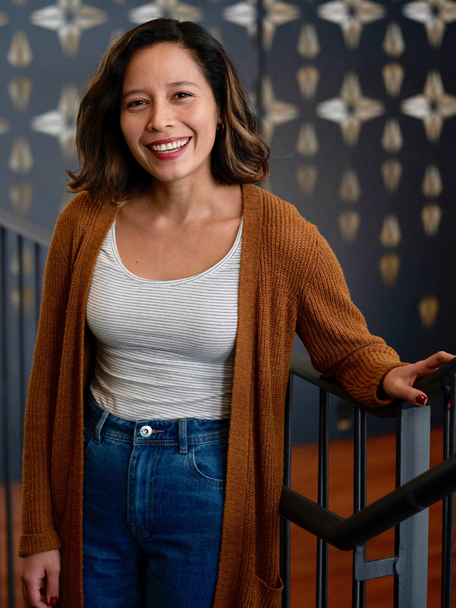 Zoila Ponce de León (Ph.D., 2018, assistant professor, Washington and Lee University) https://www.zoilaponcedeleon.com/
Zoila Ponce de León (Ph.D., 2018, assistant professor, Washington and Lee University) https://www.zoilaponcedeleon.com/
Zoila Ponce de León is an Assistant Professor in the Politics Department and a core faculty member of the Latin American and Caribbean Studies (LACS) Program. Her research focuses on social policy and comparative political economy, with particular emphasis on the politics of policymaking. She is broadly interested in explaining the variation in the expansion of social benefits across new democracies. Her book project, Political Parties and Policy Reform: Expansion of Healthcare in Latin America, approaches this issue by studying how and why the role of political parties as policymakers influences the quality of legislation and its implementation. Through the comparison of healthcare reform processes in Chile, Mexico, and Peru in the 2000s, she analyzes how programmatic versus non-programmatic parties affect the policymaking process.
Ponce de León studies other factors that influence the expansion of social benefits as well as political representation, including the impact of the COVID-19 pandemic, the expansion of the private healthcare sector, gender bias on legislator responsiveness, party-voter policy congruence and clientelism, and immigration attitudes. Her work has been published in the following peer-reviewed journals: Journal of Latin American Studies, Journal of Experimental Political Science, Oxford Research Encyclopedia of Politics, and Revista de Ciencia Política.
Zoila’s comments: “I cherish my time at UNC. My advisor, committee members, and various professors provided the most insightful and generous mentoring I could have wished for. Many of my peers were not only academically inspiring and supportive but also provided a home away from home.”
 Anthony Chergosky (Ph.D., 2018, assistant professor, University of Wisconsin-La Crosse) https://www.uwlax.edu/profile/achergosky/
Anthony Chergosky (Ph.D., 2018, assistant professor, University of Wisconsin-La Crosse) https://www.uwlax.edu/profile/achergosky/
Anthony teaches a variety of courses, including introductory American government, legislative process, campaigns and elections, the American presidency, politics and the media, research methods, and first-year seminar. While at the University of Wisconsin-La Crosse, Anthony received the Eagle Teaching Award, a university-wide recognition of excellence in teaching that is based on nominations submitted by students. Anthony has become an active political commentator, making regular appearances on local radio and television and participating in frequent interviews with journalists to comment on current political events. Anthony has also moderated numerous political debates and has presented to audiences at numerous community events.
Anthony comments on his time at UNC:
“I am glad that I chose UNC for graduate school. I found the program to be both rigorous and friendly. Faculty did an excellent job of helping students develop goals and supporting students in progressing toward those goals. Most importantly for me, I was able to get significant teaching experience and had many opportunities to work with undergraduate students while I was at UNC. This helped make me a better candidate for teaching-focused positions and eased my transition into a job that involved considerable teaching and advising responsibilities.”
 Gabriele Magni (Ph.D., 2018, assistant professor, Loyola Marymount University) https://gabrielemagni.com/
Gabriele Magni (Ph.D., 2018, assistant professor, Loyola Marymount University) https://gabrielemagni.com/
Gabriele is an Assistant Professor of Political Science at Loyola Marymount University (LMU). He is also the Founding Director of the LGBTQ+ Politics Research Initiative at LMU and the Director of the Global Policy Institute in Los Angeles. In 2023-24, he is a Visiting Scholar at the Russell Sage Foundation in New York.
His research has been published in the American Political Science Review, the American Journal of Political Science, the Journal of Politics, the British Journal of Political Science, and Comparative Political Studies, among other outlets.
He has also written for The Washington Post, Politico and The New Republic. And his work has been covered by, or he has provided commentary to, The New York Times, The Washington Post, FiveThirtyEight, Fox News, NBC News, ABC News, TIME, Al Jazeera, USA Today, Associated Press, and Reuters, among others.
His research explores how social contexts and group identities influence political preferences and behavior. He is interested in the factors that shape participation, solidarity and representation in advanced democracies. He investigates these topics in two substantive areas. One stream of his work focuses on LGBTQ+ politics and examines the causes and consequences of LGBTQ+ political representation. Another stream examines the drivers of public opinion on immigration, economic inequality, and welfare policies.
Before joining LMU, he was a Postdoctoral Fellow at Princeton University’s Niehaus Center for Globalization and Governance. He received a Ph.D. in political science from UNC Chapel Hill, an M.A. from the University of Bologna, and a B.A. from the University of Milan. His research has been supported by the Russell Sage Foundation, the Haas Fund Fellowship, the American Political Science Association, and the Royster Society of Fellows. He tweets at @GabMagni.

Eric R. Hansen (Ph.D., 2017, assistant professor, Loyola University Chicago) http://ehansen4.sites.luc.edu/
Eric’s research examines the occupational backgrounds of public officials, representation and policymaking in state legislatures and Congress, and how college-educated Americans engage in politics. His work has appeared in a number of peer-reviewed journals including the American Political Science Review, the Journal of Politics, and Political Behavior. Eric has also published work on identity and representation, educational attainment and voting behavior, and policy diffusion. His articles have appeared in the American Political Science Review, the Journal of Politics, Political Behavior, and State Politics & Policy Quarterly.
Eric’s comments:
“I cherish the time I spent at UNC. I do my best work surrounded by a caring and supportive community. Carolina gave me that kind of environment. I worked closely with my advisor, committee members, and fellow students during and after graduate school. I gained excellent training in research and teaching, most of it through active involvement in research projects and in the classroom. I think all the time about the outstanding mentorship I received at Carolina and strive to pass on that level of care and commitment to my own students.”

Svet Derderyan (Ph.D., 2015, assistant teaching professor, University of Colorado Boulder) https://sites.google.com/site/svetderderyan/home
Svet joined the Department of Political Science at the University in Colorado Boulder in 2016. As an Assistant Teaching Professor, he teaches broadly across European, comparative, and international politics. His research focuses on the interplay between supranational, international, and grassroots (civil society) pressures on governments to implement good governance policies, such as anti-corruption, environmental policies, regional development etc. He also studies International Organizations and how their evolving structure and decision-making impacts their authority relative to their members. Lastly, he works on the politics and economics of development and underdevelopment drawing comparisons between regional development strategies in Africa, Latin America, Southeast Asia, and Eastern Europe.
Svet’s comments:
“The training opportunities I received at UNC were fantastic. I specialized in comparative and had IR as a minor, but was grateful to also receive great training in a variety of quant and qual research methodologies. I also enjoyed the balance between seminal and more current research that the core classes offered. Perhaps more than anything I enjoyed the personal and caring attitudes of the faculty in the department who took each student’s success or failure to heart. I will treasure my time in Carolina as perhaps the most formative in my life and am eagerly waiting for an opportunity to give back to my department and students there as an alumnus and/or a fellow academic the next available opportunity.”

Elizabeth J. Menninga (Ph.D., 2015, associate professor, University of Iowa) https://www.elizabethmenninga.com/
Elizabeth’s research focuses on the role of the international community in conflict resolution. She is interested in how the presence of mediators, as well as the characteristics of those mediators, shape the resolution process and the post-conflict society. Additionally, she is interested in how innovations in political methodology have opened doors to asking new questions or better evaluating existing theories. Her work in network analysis seeks to provide new tools for evaluating and studying questions in political science. Her book project, Multiparty Mediation: Identifying Characteristics of the Mediation Dream Team,explores how and when multiparty mediation efforts overcome the collective action problems associated with multiple mediators (free-riding, forum-shopping, and mixed messages). While multiple mediators sometimes complicate the negotiating environment, not all multiparty efforts are equally plagued by these problems. Moreover, some multiparty efforts provide unique advantages that make them better able to influence the combatants and generate an agreement. Elizabeth’s research has been published in Conflict Management and Peace Science and presented at conferences including Political Networks, ISA, Peace Science, and APSA.
Elizabeth’s comments:
“The training and opportunities that I’ve had as a graduate student at UNC have been instrumental in preparing me for a career as a professor. The coursework at UNC taught me the methodological and substantive tools needed to do excellent research, but perhaps more importantly I’ve also learned a great deal from getting to work alongside faculty. The collegial and supportive nature of the department has enhancing my time at UNC by providing not only the necessary tools to do my own research, but also encouraging me to work with other students. Throughout my time at UNC I got to share my work with others and broaden my perspective by hearing about others. This sharing has resulted in several coauthored projects with colleagues whose interests overlap with mine; these joint projects have produced professional relationships that I am sure I will continue to produce joint research long after I’ve left Carolina.”
 Alissandra T. Stoyan (Ph.D., 2014, assistant professor, Texas Tech University) https://www.astoyan.com/
Alissandra T. Stoyan (Ph.D., 2014, assistant professor, Texas Tech University) https://www.astoyan.com/
Alissandra is an Assistant Professor of Political Science at Texas Tech University. Her research centers on comparative and Latin American politics. Ali’s interests include institutional change, democratization, and executive-legislative relations in Latin America. Her dissertation focuses on how presidents with ambitious reform agendas implement them in a democratic context and, more specifically, the dynamics of reform via constituent assembly in Latin America. Other research evaluates: the interactions between institutions and public opinion, executive-legislative relations and policy-making, as well as institutional change and the expansion of legal rights.
Prior to joining Texas Tech, she was an Assistant Professor of Political Science at Kansas State University. She received her Ph.D. and M.A. in Political Science from the University of North Carolina at Chapel Hill, and a B.A. from Union College in Schenectady, NY. She is originally from Syracuse, NY.
Ali’s comments:
“UNC’s Political Science Department is a vibrant intellectual community. I benefited from excellent faculty mentorship and collaboration with fellow graduate students. Moreover, I had ample opportunities to develop both my research and teaching abilities. I secured funding to conduct fieldwork in Latin America nearly every summer and once during the academic year, presented my work at national and international conferences, received feedback on my research from multiple departmental working groups, and served as an instructor of record twice.”
 Sara Niedzwiecki (Ph.D., 2014, associate professor, University of California, Santa Cruz) https://www.saraniedzwiecki.com/
Sara Niedzwiecki (Ph.D., 2014, associate professor, University of California, Santa Cruz) https://www.saraniedzwiecki.com/
Sara’s research is on the process through which social policies are formed and implemented as well as on the territorial structure of government in Latin America. Her book, Uneven Social Policies: The Politics of Subnational Variation in Latin America (2018, Cambridge University Press) explores the political factors that shape the implementation of social policies in decentralized countries. It was awarded the Latin American Political Science Association’s Donna Lee Van Cott Book Award from The Political Institutions Section and the International Public Policy Association’s IPPA Book Award. A second, co-authored book, Measuring Regional Authority: A Postfunctionalist Theory of Governance (Oxford University Press, 2016), presents the Regional Authority Index for 80 OECD+, Asian, and Latin American countries from 1950 to 2010. Niedzwiecki’s work has been published in Comparative Political Studies, Electoral Studies, Latin American Politics and Society, Studies in Comparative International Development, Journal of Politics in Latin America, Regional and Federal Studies, PS: Political Science and Politics, International Political Science Review, Saúde Coletiva (Brazil), and Revista de Ciencia Política (Chile). During 2020-2021 academic year, Professor Niedzwiecki was a fellow at the University of Notre Dame’s Kellogg Institute for International Studies where she worked on a new project on social policy and immigration in Latin America.
Sara’s comments:
“I cannot imagine a better experience than the one I had at the graduate program at UNC. The generosity of faculty, graduate students, and staff showed me the best qualities of academic life and shaped my identity as a committed scholar. The teachings inside and outside of the classroom demonstrated the ways in which academic work can be rigorous, methodologically plural, politically relevant, and collaborative. Faculty and graduate students collaborated in research and in teaching, producing an environment that was conducive for discovering not only co-authors but also life-long friends.”

Mary Layton Atkinson (Ph.D., 2013, associate professor, UNC Charlotte) https://pages.charlotte.edu/mary-atkinson/
Mary (Mel) Atkinson is associate professor of political science at UNC Charlotte. Her research focuses on questions related to substantive representation in the United States. This overarching interest motivates scholarship in two areas. The first examines how the news media inform public policy opinion, and how public opinion feeds back on the policy-making process. The second examines the impact of gender diversity in the U.S. House on the Congressional agenda and on substantive policy debate. She is the author of Combative Politics: The Media and Public Perceptions of Lawmaking (University of Chicago Press, 2017) and co-author of The Dynamics of Public Opinion (Cambridge, 2021 with Elizabeth Coggins, James Stimson and Frank Baumgartner).
Mel’s comments:
“The department at Chapel Hill is extremely collaborative, and that creates an ideal environment for graduate study. Graduate students study together, form writing workshops, and co-author papers with one another as well as with faculty. Many graduate students (myself included) also have the opportunity to work as part of grant-supported, faculty-led research teams pursing multi-year projects. Through these apprenticeships with faculty, I learned research, project management, and problem-solving skills that simply cannot be taught in a seminar setting. To me, these types of collaborations are at the heart of what makes Chapel Hill so special. I cannot imagine a more intellectually rich and rewarding setting to pursue a PhD in political science.”
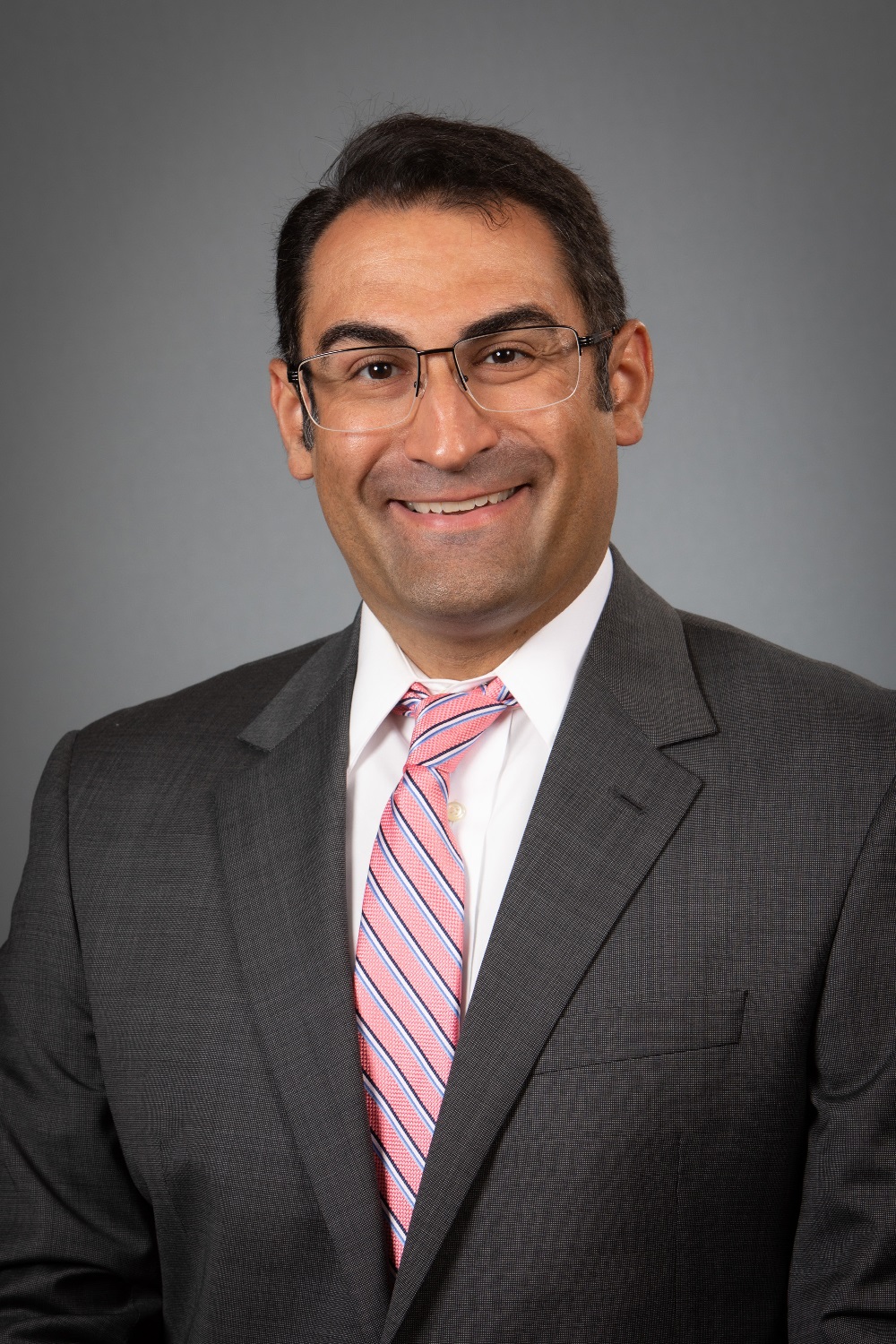 Kevin K. Banda (Ph.D., 2013, adjunct associate professor, Texas Tech University) https://sites.google.com/view/kevinkbanda/
Kevin K. Banda (Ph.D., 2013, adjunct associate professor, Texas Tech University) https://sites.google.com/view/kevinkbanda/
Kevin Banda is an Adjunct Associate Professor in the Department of Political Science at Texas Tech University. His research focuses broadly on public opinion, campaigns, elections, and political communication in the American context. More specifically, his work centers on candidate interaction, the effects of cue taking in attitude formation, and campaign advertising. His research has been published inPublic Opinion Quarterly, State Politics & Policy Quarterly, and Politics, Groups, and Identities.
Kevin’s comments:
“I thoroughly enjoyed my time at UNC. The department as a whole offered me a stimulating intellectual environment and several faculty members provided me with a good deal of mentorship while guiding me through the program. My research and understanding of the discipline as a whole were improved by the presence of various working groups and speaker series. Additionally, I met several of my best friends, many of whom have become coauthors, during my time in graduate school at UNC. The program at UNC was the right fit for me. I cannot imagine enjoying equal success had I gone anywhere else.”

Besir Ceka (Ph.D., 2013, associate professor, Davidson College) https://besirceka.com/
Besir is an Associate Professor and the Chair of the Political Science Department at Davidson College. He received his PhD in 2013 from the Department of Political Science at the University of North Carolina at Chapel Hill. Prior to coming to Davidson, he was a Max Weber Fellow at the European University Institute in Florence, Italy. He teaches courses in international relations and comparative politics with a particular focus on European politics.
Broadly speaking, his research and teaching interests lie in the fields of public opinion, political behavior, European integration, international organizations and post-communist politics. His research examines the causes and consequences of political trust and satisfaction with democracy in Europe.
More recently he has become fascinated by the psychology of conspiracy theories and has studied the effect of conspiratorial thinking on political tolerance. His current research investigates strategies for effectively countering misinformation on social media platforms. He is a co-author of Measuring International Authority: A Postfunctionalist Theory of Governance, a book on international organizations published by Oxford University Press. His other work has been published in Comparative Political Studies, Comparative Politics, European Union Politics, Journal of European Public Policy, European Journal of Political Research, Review of International Organizations, Foreign Affairs, Journal of Democracy, and Communications Psychology.
He received his BA from Bates College in Lewiston, Maine. In his free time, he enjoys woodworking, gardening, and riding motorcycles. He also loves playing racquetball, squash, foosball, and soccer.
Besir’s comments:
“I was very fortunate to get my Ph.D. from the Department of Political Science at UNC. The training is first-rate, the academic support is unrivaled, and the close relationships one is able to forge with advisers are immensely satisfying and professionally invaluable. I got the chance to work closely on research projects with my advisers, and grow as scholar in the process. I also had many opportunities to teach my own courses and enhance my teaching experience and skills. I had an incredible experience overall, and I would recommend this department in a heartbeat.”
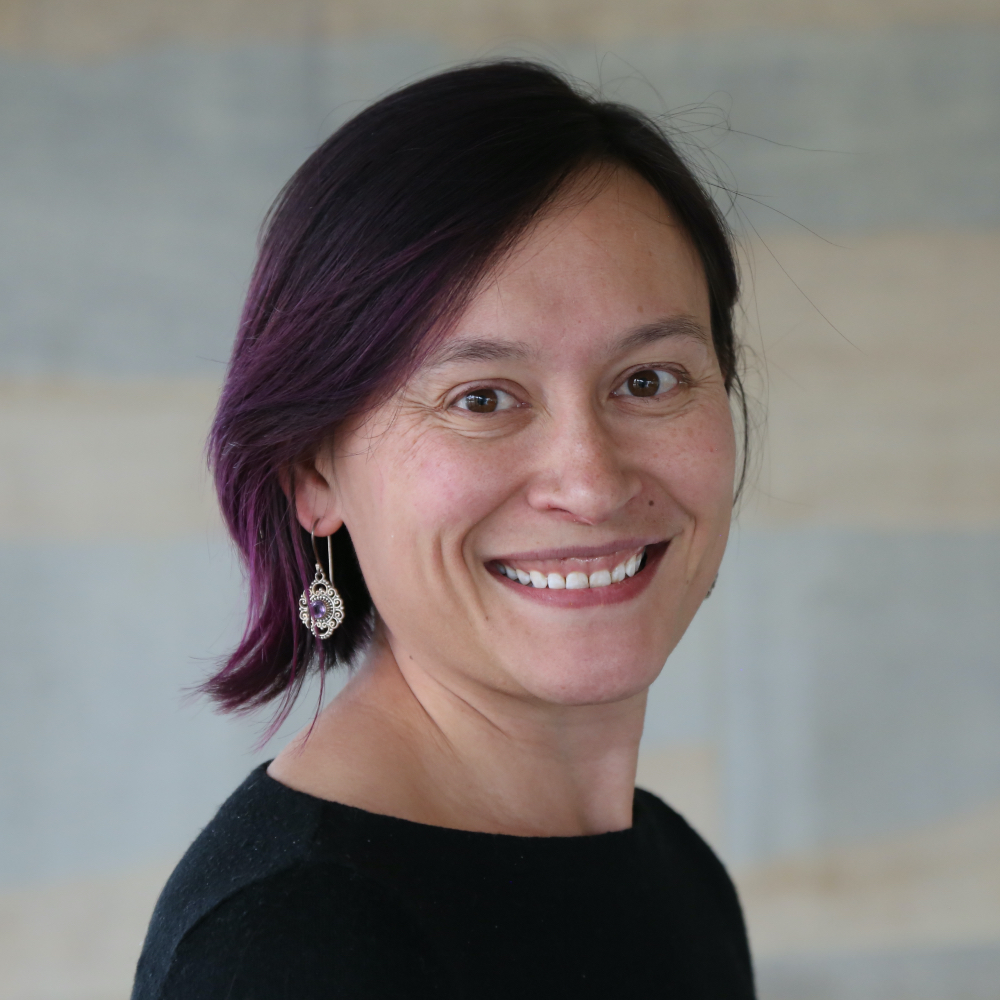 Sarah Shair-Rosenfield (Ph.D., 2013, senior lecturer, Department of Government, Essex University)
Sarah Shair-Rosenfield (Ph.D., 2013, senior lecturer, Department of Government, Essex University)
Sarah contributes to the evidence and public policy research methods working group. Sarah specializes in the comparative politics of elections, political parties and democratization. She is currently working on three research agendas. First, based on her dissertation research, is a book manuscript on the causes and consequences of electoral reform for democratization, with a focus on post-transition Indonesian development. The second, with a team of international researchers, is a book project on subnational authority in Western Europe, Eastern Europe, Latin America and Asia-Pacific. Finally, Sarah also has an active research agenda linking female political representation to both electoral reform and decentralization. This project focuses primarily on Southeast Asia and Latin America and has already produced multiple article-length manuscripts in press and under review.
Sarah’s comments on her training here:
“One of the most valuable things I learned during my time in grad school was that highly critical feedback could effectively produce better research if you knew that the purpose of said feedback was to be encouraging and constructive. The members of UNC’s political science department accomplished this by fostering an environment that prioritized collegiality, collaboration and constructive criticism among the faculty, in faculty interactions with graduate students, and among the grad student cohorts. During my years at UNC I had the opportunity to present my own research in multiple venues – from the student-faculty Comparative Working Group to a department-wide scholarship seminar to practice job talks – and to get feedback from some of the most highly critical yet extremely supportive graduate student colleagues and faculty members I’ve ever met. Every bit of that feedback has improved my work so much and taught me the type of environment I hope to foster with my own students and faculty colleagues.”
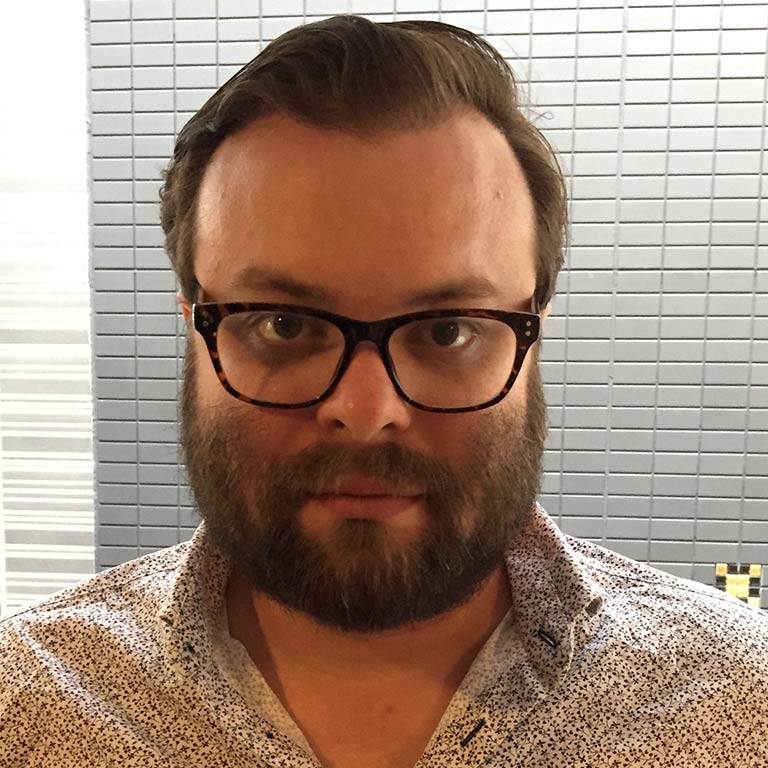 William Kindred Winecoff (Ph.D., 2013, associate professor, Indiana University at Bloomington)
William Kindred Winecoff (Ph.D., 2013, associate professor, Indiana University at Bloomington)
Will’s interests involve the politics of the global economy, in particular the international financial system. He researches how financial firms respond to, and influence, regulatory policies and political institutions, and how these aggregate into a global system of financial interdependence. His ongoing research examines the global banking system using complex network methodologies, the politics of “technocratic” monetary institutions, and episodes of crisis and reform.
Here’s what Will says about his experiences at UNC:
“UNC’s Political Science Department provides excellent opportunities to gain the substantive and methodological knowledge needed to become a professional political scientist. More than that, the culture of the department is supportive, collaborative, and collegial. The program is oriented towards training future academics, and its placement record demonstrates success. One of the best things about the program is the willingness many of the faculty have to work with the graduate students on collaborative research projects. I benefited enormously from such opportunities, as have many of my fellow graduate students.”

Rebecca Best (Ph.D., 2012, associate professor, University of Missouri – Kansas City) https://rhbest.wixsite.com/rebeccabest
Rebecca is an associate professor in the Department of Political Science at the University of Missouri at Kansas City, where she is also an associate faculty member of the Women, Gender, and Sexuality Studies program. Her research focuses on women in conflict, negotiations between states and factionalized insurgencies, and the reintegration of veterans. She currently serves on the editorial board of International Interactions, as the 2022 Program Chair for ISA Midwest, and as a faculty fellow of UMKC’s CAFE program. She is also a contributor at Political Violence at a Glance. She is a native of North Carolina, where she earned her doctorate from the University of North Carolina in 2012. Her research has been published in Political Research Quarterly, International Interactions, Conflict Management and Peace Science, Journal of Global Security Studies, Armed Forces and Society, and the Journal of Veteran Studies.
Rebecca comments about her experience in graduate school:
“My time at UNC shaped me as a scholar and a person. I was able to work closely with faculty mentors who helped me to grow as a scholar and to develop the skills I would need for a career in academia. From the seminars to the hours of one on one mentoring and willingness to collaborate with students, UNC’s faculty are unsurpassed. The program also nurtures a sense of community and collaboration among graduate students, and I treasure the friendships that I made while in graduate school. I’d be remiss if I didn’t also mention the staff in the political science department who worked tirelessly to ensure that students had access to the resources and support we needed and to facilitate a collegial environment.”
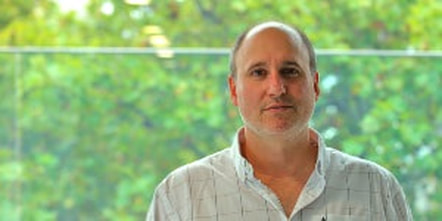 Juan Bogliaccini (Ph.D., 2012, professor and dean of the Graduate School, Universidad Católica del Uruguay) https://juanbogliaccini.weebly.com/
Juan Bogliaccini (Ph.D., 2012, professor and dean of the Graduate School, Universidad Católica del Uruguay) https://juanbogliaccini.weebly.com/
Juan’s work focuses on the political economy of distribution in developing countries with the aim to understand the political interaction between the state, business, and labor and how this interaction shapes models of production and redistribution. Within this umbrella, Juan has ongoing collaborative projects on the effects of FDI on inequality, and in-firm vocational training in developing countries, as well as other projects on business interest organization and coalitional politics. He is also working on his book manuscript on varieties of capitalism in the developing world. His work has appeared, among other places, in the Latin American Research Review, Reforma y Democracia and The Oxford Handbook of the Welfare States.
Juan’s comments on his experience in Chapel Hill:
“I enjoyed the most out of my years at UNC Chapel Hill. Faculty in the comparative field worked in a collegial manner and graduate students were constantly invited to jump in into projects and discussions. The regular workshops at the Department as well as the workshops jointly organized with people at Duke were among the most precious learning instances for me. Those informal events unveiled the process of knowledge building while discussing either a graduate student or professor’s paper. Upon graduation I have had the opportunity to collaborate in different research projects with UNC professors and fellow graduate students at both UNC at Duke. These ventures are a direct consequence of the collegiality that was in the air at the UNC Department of Political Science.”
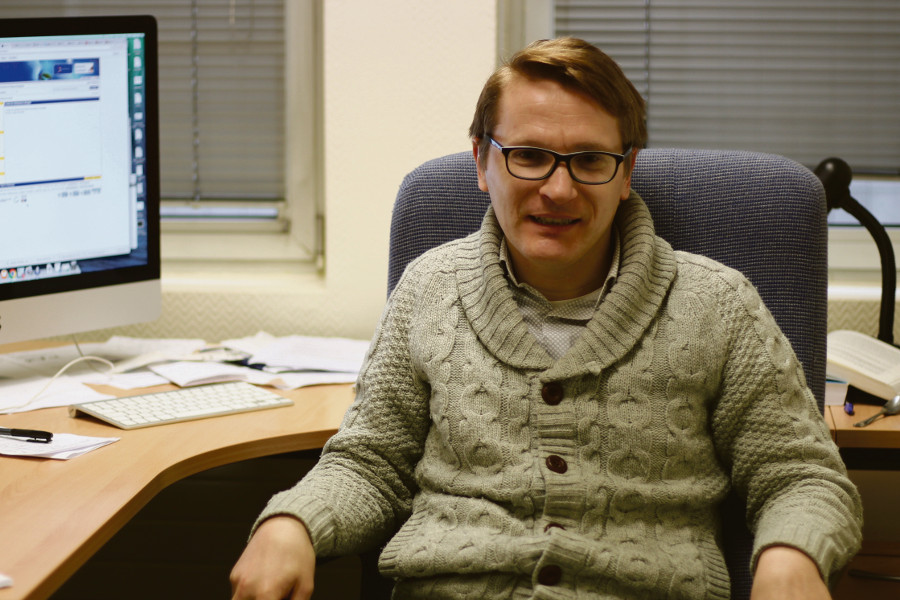 Emanuel Coman (Ph.D., 2012, assistant professor, Trinity College Dublin)
Emanuel Coman (Ph.D., 2012, assistant professor, Trinity College Dublin)
Emanuel’s research focuses on the behavior of legislators inside and outside parliaments and the way in which institutional arrangements influence this behavior. His dissertation work explores variations in party vote unity in 33 national parliaments, with the help of a unique dataset of roll call votes. His research has been published in Comparative Political Studies, Legislative Studies Quarterly, West European Politics and Journal of Legislative Studies. Currently Emanuel is working on a few research projects that look at the way in which the government’s response to changes in public opinion varies across countries and the way in which institutions mediate this response.
Emanuel’s comments:
“The department at UNC Chapel Hill offered me the top graduate training that I needed to succeed in the job market in a very collegial and helpful environment, and a wonderful place to live. The professors with whom I had the pleasure to work gave me invaluable feedback at every step in my graduate student career, and even nowadays I rely on their advice at every step in my ongoing research. Having worked in Britain for over a year I realized how well regarded the department of political science at UNC is not only in the US (which I had known for a while) but also abroad. This makes UNC graduates competitive in the US and abroad. Overall I had a great graduate experience that I highly recommend to prospective graduate students. “
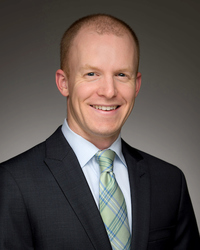
Jeff Harden (Ph.D., 2012, associate professor, University of Notre Dame) https://jharden.nd.edu/
Jeff is the Andrew J. McKenna Family Associate Professor in the Department of Political Science, Concurrent Associate Professor in the Department of Applied and Computational Mathematics and Statistics, and Faculty Affiliate of the Lucy Family Institute for Data & Society at the University of Notre Dame. Jeff’s areas of specialty are political methodology and American politics. His methodology interests include model selection, robust regression methods, multilevel data, and the use of Monte Carlo simulation to better understand issues that arise in applied analysis. His research agenda in American politics focuses on political representation, mass/elite linkages, and state politics.
Jeff’s comments on graduate school at UNC:
“The political science department at UNC was the perfect place for me to learn how to be a political scientist. I benefited from excellent mentoring by faculty, an engaging intellectual environment, and the resources of a world-class research university. Most importantly, the department was always friendly and collegial. Graduate school is hard work, but that hard work pays off at Carolina.”
 Justin H. Kirkland (Ph.D., 2012, associate professor, University of Virginia) https://jhkirkla.com/
Justin H. Kirkland (Ph.D., 2012, associate professor, University of Virginia) https://jhkirkla.com/
Justin is a Professor in the Department of Politics and Professor (by courtesy) at the Frank Batten School of Leadership and Public Policy at the University of Virginia. He is also a faculty affiliate at the Center for Effective Lawmaking. Justin’s research focuses on legislative politics, state politics, and representation. He is the coauthor of Indecision in American Legislatures (University of Michigan Press), Roll Call Rebels (Cambridge University Press), and The Illusion of Accountability: Transparency and Representation in American Legislatures (Cambridge University Press). He has also published research in the American Political Science Review, American Journal of Political Science, and The Journal of Politics. He also currently serves as co-editor of Legislative Studies Quarterly, and continues to conduct research on legislative institutions, representation, and subnational politics.
Justin’s comments:
“My time as a student at UNC was wonderful. I had outstanding mentoring, great classmates, and the full support of everyone in the department. The department’s reputation for collegiality is well deserved, and many of the graduate students I went through the program with remain my close friends and co-authors. Even after leaving, my mentors remain active parts of my professional life and continue to provide me with counsel. From my point of view, one of the real benefits of getting a PhD in the political science department at UNC is the intellectual freedom the department affords its students. During my time at UNC, I saw students work through dissertations on social networks, the gender politics of state executives, immigration policy, and the politics of romantic relationships. That sort of diversity in intellectual interests is rare in graduate programs, but the department at UNC encourages that sort of high-risk intellectual curiosity. I could not have chosen a better place to study, and I remain very proud to have been a student at Carolina.”
 Allison Rovny (Ph.D., 2012, administrative director, Sciences Po, Paris) https://www.sciencespo.fr/osc/fr/node/2463.html
Allison Rovny (Ph.D., 2012, administrative director, Sciences Po, Paris) https://www.sciencespo.fr/osc/fr/node/2463.html
Allison is the Administrative Director at AxPo Observatory of Market Society Polarization and Research Activities Coordinator at the Centre for Research on Social Inequalities (CRIS) at SciencesPo, Paris. Allison’s research focuses on the welfare state, the presence of new social risks in postindustrial political economies, and the growing divide between those deemed to be insiders and outsiders. The term “new social risks” arguably signifies one of the defining areas of contemporary research on welfare state adaptations in advanced affluent democracies. In her research, she examines how the various worlds of welfare provision—social policy tools—affect the well-being of new social risk groups, and whether we are indeed witnessing an emergence of labor market and welfare state outsiders. Her research has analyzed the effects of social policies on the likelihood of being poor among low-skilled populations. Ongoing research projects consider the extent of dualization across and within advanced welfare states, and probe the extent to which a divide between labor market insiders and outsiders has cemented over time, and whether the welfare state exacerbates or ameliorates this dualism. Her recent work also considers voting behavior of insiders and outsiders in Europe. Her work has appeared in Socio-Economic Review and the Journal of European Social Policy.
On my experience at UNC:
“My graduate training at UNC offered me many opportunities, not least of which was the chance to benefit from excellent and critical feedback from some of the best faculty in the field. The emphasis on qualitative understanding of comparative politics, coupled with rigorous methodological training and application, prepared me well for a professional career in political science. The program is well structured and gives students background in the key topics and literature, while allowing ample space for students’ own ideas to develop. I especially appreciated the collaborative and collegial atmosphere between graduate students and faculty, and the open nature of faculty who were more than willing to engage their younger colleagues. The Comparative Working Group is a highlight for students of comparative politics, for the excellent platform it provides to present research and receive feedback from scholars of all levels within the department, and to receive valuable training in learning how to present one’s own research.”
 Joel Winkelman (Ph.D., 2012, lecturer, Hamilton College) https://my.hamilton.edu/academics/our-faculty/directory/faculty-detail/joel-winkelman
Joel Winkelman (Ph.D., 2012, lecturer, Hamilton College) https://my.hamilton.edu/academics/our-faculty/directory/faculty-detail/joel-winkelman
Joel completed his Ph.D. in 2012 in the field of political theory. His research interests are American Political Thought, and the relationship between work and democracy. Research he completed at UNC has been published in Polity and The Review of Politics. Currently, Joel is currently a Visiting Assistant Professor of Government at Hamilton College in Clinton, NY.
Joel’s comments on his time at UNC:
“My experience at UNC was very fine. My intellectual development was supported by graduate student colleagues and faculty alike. Through training and mentorship, I learned how to develop those of my own ideas that were worth pursuing, and how to discard those that weren’t serviceable. Upon completion of the program, I found that I had formed an unimaginably richer understanding of the social and political world than I had when I began. It changed the way I think.”
 Jennifer Benz (Ph.D., 2011,vice president, NORC at the University of Chicago) https://www.norc.org/about/experts/jennifer-benz.html
Jennifer Benz (Ph.D., 2011,vice president, NORC at the University of Chicago) https://www.norc.org/about/experts/jennifer-benz.html
Jenny is a senior researcher managing The Associated Press-NORC Center for Public Affairs Research, which is a media and research partnership designed to meet challenges of modern journalism and reporting. In this role, Jenny conducts public opinion research on a variety of timely and policy relevant topics. Jenny’s research examines awareness, knowledge, attitudes, and behavior among the public and targeted constituencies. This research has been funded by some of the largest foundations in the country and has been featured extensively in the popular press, utilized by politicians and policymakers, and resulted in scholarly articles.
Jennifer’s comments about her experience in graduate school:
“From my first visit during recruitment weekend, I was attracted to the Department’s collegiality and sense of camaraderie among the graduate students. The faculty expected incredibly high standards from their graduate students, but backed that up with a supportive environment that encouraged collaboration and intellectual exploration. Faculty fostered an environment that rewarded hard work, encouraged constructive criticism, and provided plenty of opportunities to present and get feedback on work in progress. At UNC, I was able to pursue an interdisciplinary course of study and I continue to apply an interdisciplinary approach in both theory and methods to my research. I left UNC both a better colleague and a better researcher and I am grateful for the opportunity to study under the faculty and work with some of the best graduate students in the country. My UNC memories are some of my fondest.”
 Danielle Pilar Clealand (Ph.D., 2011, associate professor, University of Texas at Austin) https://www.danielleclealand.com/
Danielle Pilar Clealand (Ph.D., 2011, associate professor, University of Texas at Austin) https://www.danielleclealand.com/
Dr. Clealand is an associate professor at the University of Texas at Austin. Her research examines comparative Black politics, group consciousness, Black public opinion and racial inequality with a focus on the Spanish-speaking Caribbean and the United States. Dr. Clealand’s book, The Power of Race in Cuba: Racial Ideology and Black Consciousness during the Revolution, won both the Best Book Award from the Race, Ethnicity and Politics section of the American Political Science Association and the W.E.B. Du Bois Distinguished Book Award from the National Conference of Black Political Scientists. Dr. Clealand is currently working on two new projects focusing on Blackness within Latin@ communities: an oral and political history of Black Cubans in the United States with Devyn Spence Benson and a second that examines political attitudes, experiences with racism and identity among Afro-Latin@s in the United States. Dr. Clealand’s work can be found in Annual Review of Political Science, Ethnic and Racial Studies, Politics, Groups and Identities, Journal of Latin American Studies and SOULS. She serves on the editorial board for the Journal of Latin American and Caribbean Ethnic Studies and the National Review of Black Politics.
Danielle’s comments:
“My training in comparative politics at UNC was outstanding and the faculty in the department gave me the tools to develop a strong research agenda. The guidance that I received on my dissertation was crucial to the growth and progress of my book. My committee really took the time to make me a better scholar! I received such good and genuine advice from the faculty on my work, the job market, and professional development and am grateful for the experience. I made lifelong friends at UNC and always recommend the program it to my students!”
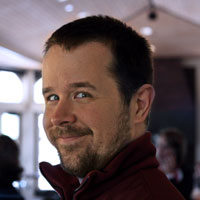
Patrick Egan (Ph.D., 2011, associate professor, Tulane University) https://www2.tulane.edu/~pegan1/index.html
Patrick is an associate professor at Tulane University. His research focuses on the politics of monetary regimes, foreign direct investment, and other international political economy topics. He is particularly interested in how host countries condition the activities of multinational corporations, and incorporate foreign investment into development strategies. His research has been published in Latin American Politics and Society and Review of International Political Economy. His current book project is on the political and institutional determinants of innovative foreign direct investment in developing countries.
Patrick’s comments:
“I received the best training at UNC. The intellectual environment was rigorous and challenging, and I felt well-prepared as I entered the academic job market. I don’t know how my mentors managed to give me so much individual attention with all of their other commitments, but somehow they did. I especially appreciated the fact that UNC faculty members had such a range of methodological expertise. My graduate school colleagues were fantastic.”
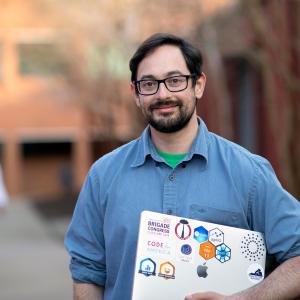 Jonathan Kropko (Ph.D., 2011, associate professor, University of Virginia) https://datascience.virginia.edu/people/jonathan-kropko
Jonathan Kropko (Ph.D., 2011, associate professor, University of Virginia) https://datascience.virginia.edu/people/jonathan-kropko
Jonathan Kropko is an associate professor at the School of Data Science. His areas of research interests include civic technology, remote environmental sensing, survival and time series analysis, and missing data imputation. With a background in math and political science, throughout his career, Kropko has sought to apply his quantitative skills to make an impact in the real world. Jonathan went to a postdoctoral fellowship at Columbia University before getting a tenure-track position at Virginia, where he still gets to cheer on the Tarheel basketball team twice a year.
Jonathan’s comments about his experience in graduate school:
“UNC gave me a very extensive and very practical education in political methodology. In addition to the excellent courses I took in the department, I was able to supplement my training with classes in the highly-ranked sociology, psychology, and economics departments, with seminars at the H.W. Odum Center for Research in the Social Sciences, and with courses at Duke, all without any additional cost. Through these resources, I had access to world-class training for every method that advanced my research agenda, and I don’t think I could have gotten such comprehensive training anywhere else. I also received a great deal of support from faculty members and other graduate students as I developed this course of study. Plus, Chapel Hill is a wonderful place to live. I consider my choice to attend UNC the best choice I’ve ever made.”
 Andrew Pennock (Ph.D., 2011, associate professor, public policy, Frank Batten School of Leadership and Public Policy at University of Virginia) https://batten.virginia.edu/people/andrew-pennock
Andrew Pennock (Ph.D., 2011, associate professor, public policy, Frank Batten School of Leadership and Public Policy at University of Virginia) https://batten.virginia.edu/people/andrew-pennock
Andy Pennock is an associate professor of public policy at the Frank Batten School of Leadership and Public Policy, teaching courses in leadership, policy analysis, political institutions and Virginia politics and policy. Pennock teaches three classes in the MPP core curriculum: Leadership in the Public Arena (LPPL 6050), where students learn to navigate the politics of change in public organizations, and the Applied Policy Project (APP I & II), where MPP students bring value to a real-world client through applied policy analysis as part of a two-semester applied capstone sequence.
During his time at Batten, Pennock has engaged and built relationships with state policy makers in Richmond, increasing Batten’s influence on policy development and implementation in Virginia and providing students with experiential learning and career opportunities. In 2018, he launched one of Batten’s first policy clinics, leading to 10 students staffing the transition teams for incoming Governor Ralph Northam. In 2019, he coordinated a campaign to pass HB 2258 which protected access to affordable, high-quality co-op preschool for more than 30 communities across Virginia. For this work, Pennock was given an outstanding achievement award by Parent Cooperative Preschools International.
Andrew comments about his experience in graduate school:
“UNC provided me the opportunity to learn from excellent mentors in the international relations & comparative politics programs, especially Thomas Oatley. I am very fortunate to have worked closely with such exemplary scholars and people. They profoundly shaped how I think about international politics, political science, and teaching. I am professionally successful because of their investment in me. In research, in reviewing, and in the classroom I always hold myself to the high standards Thomas and others modeled for me over my years at Chapel Hill.“
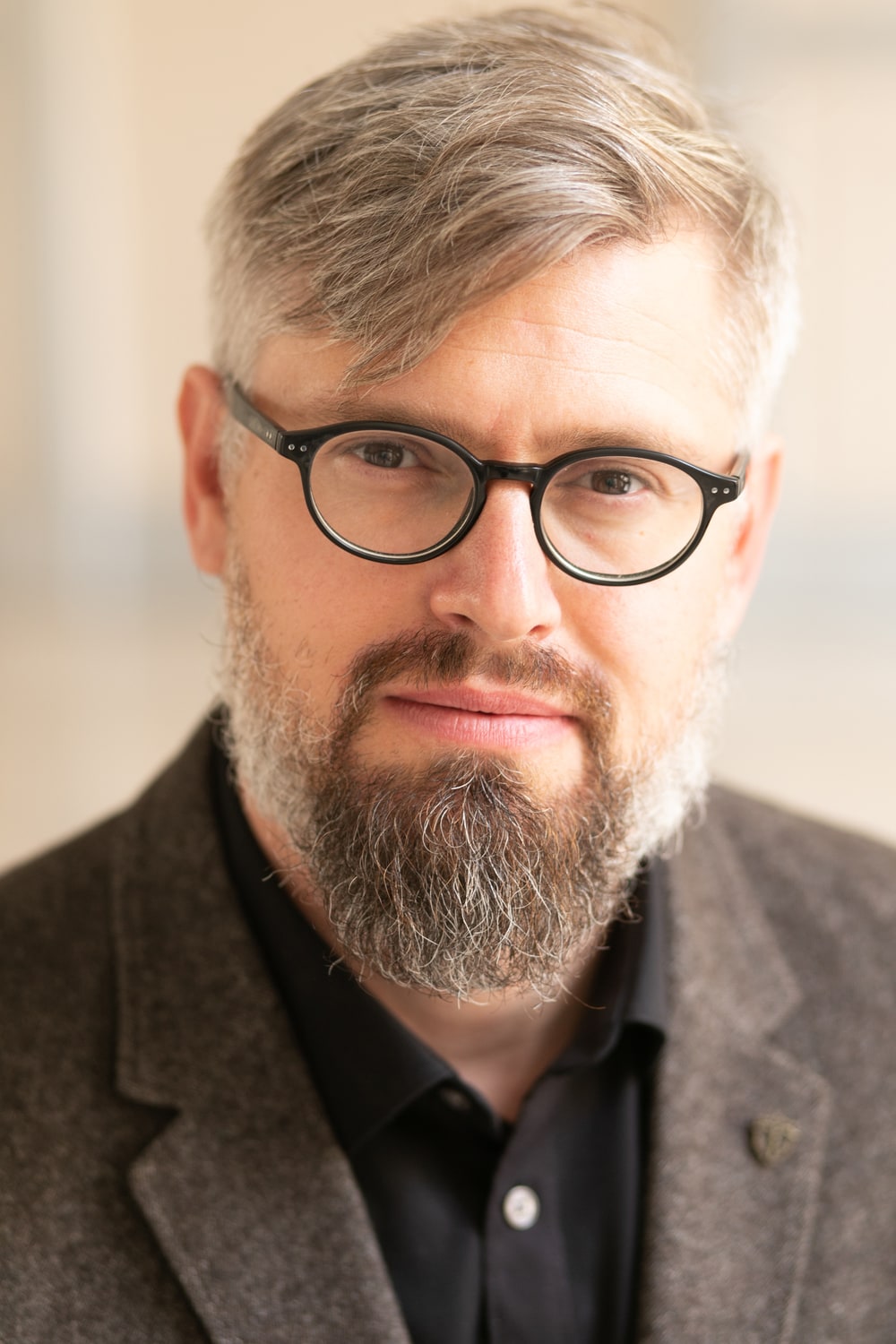 Jan Rovny (Ph.D., 2011, professor, Sciences Po, Paris) https://www.rovny.org/#bio
Jan Rovny (Ph.D., 2011, professor, Sciences Po, Paris) https://www.rovny.org/#bio
Jan Rovny is a professor of political science at the Center for European Studies and Comparative Politics at Sciences Po, Paris. Jan’s research concentrates on political competition in Europe with the aim of uncovering the ideological conflict lines in different countries. His work explores the issues that political parties contest across the continent, the strategies that different parties follow, as well as the preferences and voting patterns of voters. In addition, Jan is conducting a research project through the Center for European Research at the University of Gothenburg in Sweden where he was a post-doc between 2011 and 2013. He remains associated with UNC Chapel Hill as one of the principal investigators of the Chapel Hill Expert Surveys on party positioning.
Jan has the following reflections on his time at UNC:
“My training in political science at UNC transformed me from a student interested in political topics into a scholar with a developed theoretical and methodological toolkit. Upon graduation, I was not only ready for the academic job market, I was able to view and analyze the political world in a more profound way. Two factors were central to my formation at UNC. First was the design of the PhD program, offering focused and encompassing progression of courses. The second was the personal approach of the faculty. The professors I worked with at the department mentored me in a guided, yet nonintrusive manner. Their approach was not only wise, it was also caring. Through the combination of support and freedom, the professors elevated me to a mature academic, capable of being responsible for my own educational, research and career choices.”
 Inés Valdez Valdez (Ph.D., 2011, associate professor, Ohio State University) https://politicalscience.jhu.edu/directory/ines-valdez/
Inés Valdez Valdez (Ph.D., 2011, associate professor, Ohio State University) https://politicalscience.jhu.edu/directory/ines-valdez/
Inés is a political theorist who does research on immigration, sovereignty and cosmopolitanism. She is also interested in critical race theory, with a focus on understanding how race and racialization play out in preventing sound political judgment. She is currently working on a book manuscript that puts the cosmopolitanism of Immanuel Kant in dialogue with W.E.B. DuBois’ writings on the international color line. After getting her PhD Inés spent one year in Florence as a Max Weber Postdoctoral Fellow at the European University Institute, before getting a tenure-track position at Ohio State. Her work has appeared in Political Studies and Politics, Groups, and Identities, among other outlets.
Inés’ comments:
“The department of political science at UNC Chapel Hill is unique in the way it combines ambitious scholarship with collegiality. The environment among graduate students and between graduate students and faculty was friendly and engaging. To me, it proved to be the perfect combination of critique and encouragement that I needed to become a productive scholar who enjoys the task of research.
![Desmarais[1]](http://politicalscience.unc.edu/wp-content/uploads/sites/186/2015/05/Desmarais1-225x300.jpg)
Bruce Desmarais (Ph.D., 2010, professor, Pennsylvania State University) https://polisci.la.psu.edu/people/bbd5087/
Bruce’s primary areas of research include political methodology, computational social science and American politics. In his work, Bruce focuses on precisely identifying the complex ways in which political actors and institutions are interdependent, and developing quantitative methods capable of illuminating these dependencies. Most of his research is cast in the framework of political network analysis. Substantive applications of network analysis include international conflict, defense alliances, interstate terrorism, and legislative collaboration. Recently, Bruce has been working on the analysis of government information management and communication networks.
Bruce’s comments: “The department at UNC provided me with the ideal environment in which to thrive intellectually and develop professionally. The faculty exhibit the crucial combination of superb research accomplishment and intense commitment to graduate student mentoring. I took the unusual path of focusing on research methods in my graduate studies. My mentors were observant and open-minded enough to encourage my pursuits, and exhibited the wisdom and energy necessary to keep my work grounded in political science. The setting for graduate students is exceptionally supportive and collegial — sparking several fruitful collaborations in which I am still involved today. I couldn’t have asked for anything more from my graduate training.”
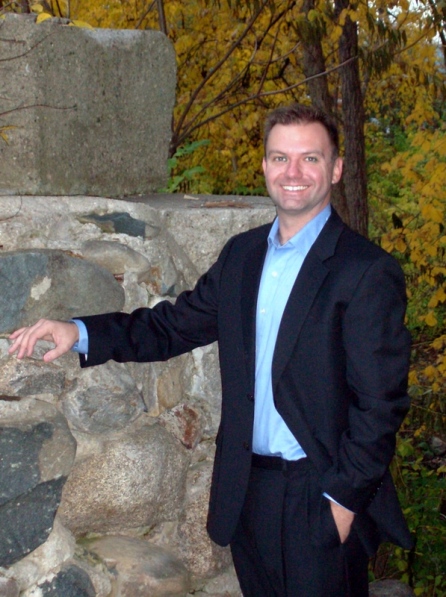 Christopher Faricy (Ph.D., 2010, associate professor, The Maxwell School at Syracuse University) https://faricy.wordpress.com/
Christopher Faricy (Ph.D., 2010, associate professor, The Maxwell School at Syracuse University) https://faricy.wordpress.com/
Chris studies the politics of income inequality including party influences on the divide welfare state, public opinion on tax expenditures, and the politics of tax policy. His dissertation project won a number of awards including – the 2012 Harold D. Lasswell Award for the best dissertation in the field of public policy from the American Political Science Association, and the 2010 Pi Sigma Alpha Award for best paper at the annual conference of the Midwestern Political Science Association. His research has appeared in various journals including multiple times in The Journal of Politics and Political Behavior. Also, Chris’ research project has been featured online in The Huffington Post, Mother Jones, and The Monkey Cage.
Chris has these comments about his time at UNC:
“I loved living in Chapel Hill and am proud to have been a graduate student in UNC’s political science program. The UNC faculty provides superior training and the graduate students and staff have created a supportive environment. My substantive interests changed a number of times during graduate school and with each turn I found encouragement, pointed advice, and expert instruction from the faculty.”
 Patrick R. Miller (Ph.D., 2010, associate professor, Kent State University) https://www.kent.edu/polisci/patrick-miller-0
Patrick R. Miller (Ph.D., 2010, associate professor, Kent State University) https://www.kent.edu/polisci/patrick-miller-0
Patrick specializes in American public opinion, political psychology, and survey and experimental methodology. He is primarily interested in the symbolic aspects of partisan identification and partisan conflict, attitudes toward LGBT rights policies, and the role of emotion in political behavior.
Patrick’s comments about UNC:
“The political science faculty members are incredibly distinguished scholars and mentors who provided me with the training necessary to succeed in academia. The graduate program is well rounded, offering a rigorous balance of both methodological and theoretical development. For Americanists in particular, the weekly American Politics Research Group meetings are an exceptional forum to meet many of the top scholars in the field and learn how good research is done. The opportunities at UNC to gain extra training through the Odum Institute and the university’s other top rate departments are also hard to match at other institutions. Plus, Chapel Hill is a beautiful and entertaining place with a high quality of life that is hard to match.”
 Joe Weinberg (Ph.D., 2010, associate professor, University of Southern Mississippi) https://www.usm.edu/faculty-directory/profile.php?id=1936862
Joe Weinberg (Ph.D., 2010, associate professor, University of Southern Mississippi) https://www.usm.edu/faculty-directory/profile.php?id=1936862
Joe’s interests revolve around international trade politics—specifically in the realm of agriculture. His work has appeared in outlets such as International Studies Quarterly and Conflict Management and Peace Science. He currently leads the interdisciplinary Agriculture Policy Research Group—funded by the United States Department of Agriculture.
Here’s what Joe says about his experiences at UNC:
“UNC’s Political Science Department provides everything needed to excel in this career. Even though I may not have appreciated that at the time, I certainly am grateful for it now! I was lucky to study alongside so many bright and engaged young scholars—nearly all of whom I keep up with 15 years later. These are my friends, my colleagues, and often, my “professional network” when I need something. The relationships I developed with faculty, staff, and fellow students have proven invaluable in my career. I am always happy to help current PhD students if I can!”
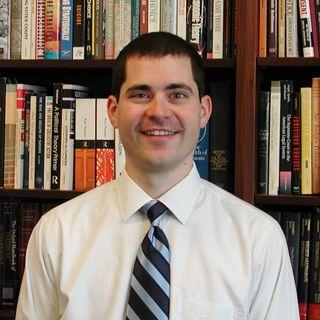 Patrick C. Wohlfarth (Ph.D., 2010, professor, Department of Government and Politics, University of Maryland, College Park) https://gvpt.umd.edu/facultyprofile/wohlfarth/patrick-c
Patrick C. Wohlfarth (Ph.D., 2010, professor, Department of Government and Politics, University of Maryland, College Park) https://gvpt.umd.edu/facultyprofile/wohlfarth/patrick-c
Patrick specializes in American politics, focusing on judicial politics, inter-institutional politics, and quantitative research methods. His research agenda primarily focuses on the U.S. Supreme Court in the separation of powers, including executive branch litigation, the impact of public opinion on the Supreme Court, and bureaucratic politics. Patrick’s dissertation research was supported by a doctoral dissertation improvement grant from the National Science Foundation. In 2010-2011, Patrick was a Post-Doctoral Fellow in the Department of Political Science and Center for Empirical Research in the Law (directed by Andrew D. Martin) at Washington University in St. Louis. Patrick’s research has been published in the American Journal of Political Science, The Journal of Politics, and the Journal of Law and Courts. Patrick’s research has also received the Best Paper by an Emerging Scholar Award from the Midwest Political Science Association and the Neal Tate Award from the Southern Political Science Association.
Patrick has these comments about his training:
“The University of North Carolina is an ideal place to pursue a doctoral degree in political science. The department’s distinguished faculty offers the training and mentoring necessary to succeed in academia. Students learn how to produce original research that is both methodologically rigorous and theoretically motivated. Faculty members at UNC are exceptional mentors, helping students to establish a scholarly record and become socialized into the profession of academic political science.From the academic support necessary to develop as a scholar to the benefits of living in a great college town like Chapel Hill, the opportunity to pursue graduate studies at UNC is both invaluable and enjoyable.”
 Reed Wood (Ph.D 2010, professor in the Department of Government at the University of Essex) https://reedmwood.com/
Reed Wood (Ph.D 2010, professor in the Department of Government at the University of Essex) https://reedmwood.com/
Before joining the University of Essex in Spring 2020, I was a member of the faculty of the School of Politics and Global Studies at Arizona State University. My research broadly focuses on political violence, conflict processes, and human rights. I typically teach courses on insurgency and terrorism, gender and conflict, human rights, and international politics.
My current research projects investigate the causes and implications of women’s participation in armed resistance movements, the influence of gender diversity on conflict resolution and post-conflict peace, and the influence of development and other forms of foreign aid on patterns of violence during civil conflicts.
I am currently involved in several ongoing data collection projects. I am co-creator (with Jakana Thomas) of the Women in Armed Rebellion Dataset (WARD). This novel dataset includes information on the prevalence of female combatants in some 200 rebel movements active between 1979 and 2009 as well as other information on women’s participation in organized violent rebellions. I am also a principal investigator on the Sub-National Analysis of Repression Project (SNARP), a human rights data collection, measurement, and analysis project funded by the National Science Foundation (NSF). I also co-manage the Political Terror Scale (PTS), which is an annually updated index of state violations of physical integrity rights.
Reed’s comments:
“I can’t speak highly enough about my graduate experience at UNC. The rigorous academic program and related training goes almost without saying. One of the most beneficial aspects of attending UNC was the collaborative environment the faculty created by the faculty. From very early in the program graduate students are encouraged to participate in collaborative research projects with faculty and are treated as colleagues. The mentoring at UNC is also exceptional. The faculty works very hard to professionalize students and help them to integrate into (and build their own) networks in the profession.”

Alixandra B. Yanus ( Ph.D., 2010, associate professor, High Point University) https://www.highpoint.edu/faculty-staff/political-science/alixandra-yanus/
Ali’s research focuses on gender and politics, particularly the relationship between gender and representation. She is currently engaged in several research projects that examine how political context and socio-demographic indicators affect the descriptive and substantive representation of women in American political institutions.
Ali’s comments on her experiences at Chapel Hill:
“Two things stand out about my experiences at Chapel Hill. First, and most important, is the collegial environment that the graduate students work hard to foster and maintain. I am fortunate to have attended graduate school with so many creative and collaborative people, many of whom will remain friends for life. My graduate school experience was also enhanced by the sense of community cultivated by the greatest college basketball program in the country. I am only half joking when I say I came for the education, and stayed because of Roy’s Boys.”
Agustina Giraudy (Ph.D., 2009, professor, American University) https://www.american.edu/sis/faculty/giraudy.cfm
Agustina is a comparativist broadly interested in the unfolding of politics beyond the central state. Her book, Democrats and Autocrats (Oxford University Press, forthcoming), explores the multiple pathways towards subnational undemocratic regime continuity within democratized countries. Her work, which analyzes subnational political regimes, subnational institutions, and the territorial reach of the state, has appeared or is forthcoming in the Journal of Politics in Latin America, Studies in Comparative International Development, Latin American Research Review, Journal of Democracy (en Español), Revista de Ciencia Política (Chile), among others. Agustina’s dissertation received the 2010 Juan Linz Prize for Best Dissertation in the Comparative Study of Democracy awarded by the American Political Science Association.
Agustina’s comments about her experience in graduate school:
I am very fortunate to have had the opportunity to spend my graduate years at UNC-CH. I benefited enormously from the rigorous academic and methodological training, from the access to resources to conduct research, from the exchange of ideas with truly smart and knowledgeable graduate peers, from the research experience of the department’s highly renowned faculty, from the methodological pluralism, but above all from the collaborative and collegial environment created by the political science faculty. I believe the department is quite unique in that it promotes and actively encourages student-faculty collaboration from the very beginning of the graduate education. The mentorship is exceptional and it really helps grad students to become rigorous political scientists. I loved UNC-CH for these reasons and not least for the fact that it promotes collaboration rather than competition among graduate students.
 John Inazu (Ph.D., 2009, Distinguished Professor of Law and Religion, Washington University in St. Louis) https://law.wustl.edu/faculty-staff-directory/profile/john-inazu/
John Inazu (Ph.D., 2009, Distinguished Professor of Law and Religion, Washington University in St. Louis) https://law.wustl.edu/faculty-staff-directory/profile/john-inazu/
John’s scholarship focuses on the First Amendment freedoms of speech, assembly, and religion, and related issues of political and legal theory. He has published widely in law reviews and specialty journals, and he is the special editor of a volume on law and theology in Duke’s Law & Contemporary Problems. His first book, Liberty’s Refuge: The Forgotten Freedom of Assembly was published by Yale University Press (2012). In 2014-2015, he was a Visiting Faculty Fellow at the Institute for Advanced Studies in Culture at the University of Virginia.
John comments on his studies at UNC:
“I received excellent training from UNC’s political theorists. My coursework, teaching, and writing during graduate school prepared me well for my current role. The theory faculty were kind, generous, and challenging, and they remain mentors and friends today.”

Ryan E. Carlin (PhD, UNC-Chapel Hill, 2008, Professor of Political Science and Director of the Center of Human Rights and Democracy in the Global Studies Institute at Georgia State University) https://sites.google.com/site/ryanecarlin/
He began Pollitik, an EPIC Project Lab in Fall 2020. He teaches courses Comparative Political Behavior, Latin American Politics, Comparative Politics, and Research Methods. Carlin’s research agenda explores how citizens’ attitudes and actions influence the stability and quality of democracy. He contributes to two global interdisciplinary research collaborations, the Executive Approval Project and Team Populism. Carlin co-founded the Southeast Latin American Behavior group and the Georgia Area Human Rights Network. He co-edits the Revista Latinoamericana de Opinión Pública, consults for the Latin American Public Opinion Project, and has been invited to teach short courses in Europe and Latin America. Carlin has briefed government, civil society, and international non-governmental organizations in multiple countries on his research.
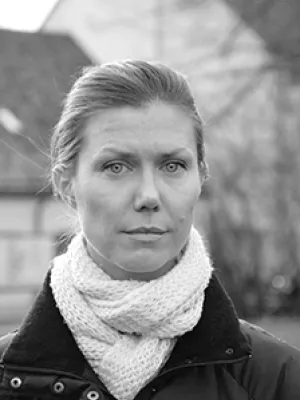 Moira Nelson (Ph.D., 2008, associate professor, Lund University, Sweden) https://www.svet.lu.se/en/moira-nelson
Moira Nelson (Ph.D., 2008, associate professor, Lund University, Sweden) https://www.svet.lu.se/en/moira-nelson
Moira conducts research on the nature and determinants of welfare state change. Ongoing research agendas focus on the politics of human capital investment and the role of voters in both reform activity and governments’ reform strategies. A recent project branches into the Latin American context in order to explore lessons for Europe regarding conditional cash transfers. Her work has been published in Comparative Political Studies, European Journal of Political Research, European Sociological Review and Journal of European Social Policy among others.
Moira has this to say about her experience:
“UNC offers a rigorous yet supportive research environment. Faculty members are at the top of their field and make efforts to include graduate students in their research projects while also encouraging students in their own research. There are many opportunities to discuss research with fellow students and faculty as well as pursue research plans abroad. Not least, the curriculum is well designed. Although comparative politics is my unquestionable field of choice, I am grateful for having completed minors in international relations and methods, having gained valuable insights into alternative ways in which to understand the social world in doing so. Further, the general spirit of the department is that we can all learn from each other despite thematic and methodological differences, which is a lesson that I will carry with me and one that I think prepares me well as the discipline invariably changes.”
 Jenny Pribble (Ph.D., 2008, professor, University of Richmond) https://polisci.richmond.edu/faculty/jpribble/#
Jenny Pribble (Ph.D., 2008, professor, University of Richmond) https://polisci.richmond.edu/faculty/jpribble/#
Jenny’s research focuses on the politics of inequality in Latin America. Her book, Welfare and Party Politics in Latin America (Cambridge University Press, 2013), develops and tests a theory to explain why some Latin American states have been more effective than others at reforming social policy in a more universalistic direction. Jenny’s new project examines the issue of labor market inequalities and local-level state capacity. Her research has appeared in Studies in Comparative InternationalDevelopment, Comparative Politics, the American Sociological Review, and Latin American Research Review.
Jenny’s comments about grad school:
“My experience at UNC was fantastic. I especially appreciated the relationships that I built with faculty members and my peers. The Political Science faculty fostered an environment where people were encouraged to ask big and meaningful questions; where methodological pluralism was applauded; and where students were pushed to help one another rather than compete. I built an extensive network of friends and colleagues who I still rely on regularly for feedback and support. Pursuing a Ph.D. at UNC was one of the best decisions I’ve made.”
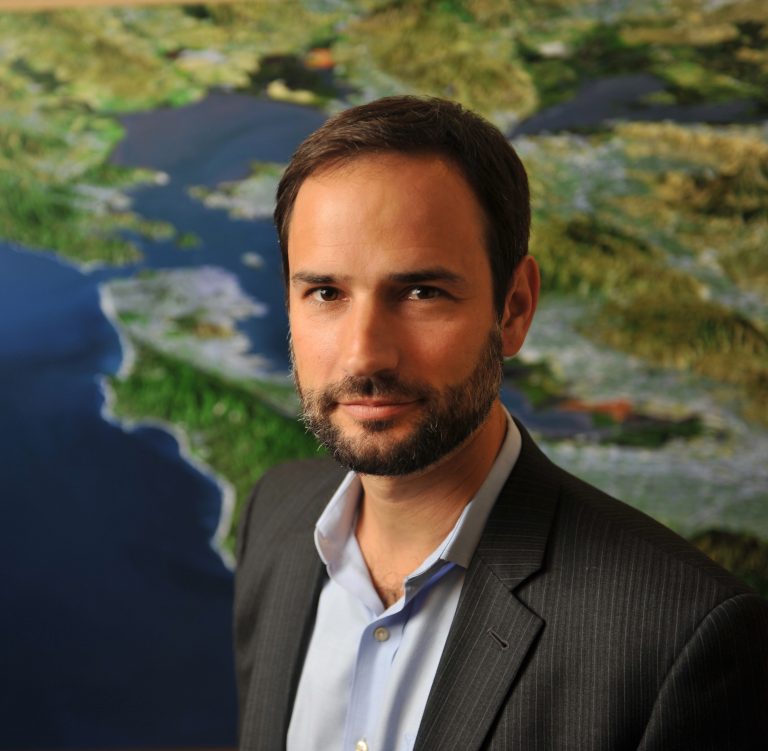 Micah Weinberg (Ph.D., 2008, President of the Bay Area Council Economic Institute) http://www.bayareaeconomy.org/contributors/micah-weinberg/
Micah Weinberg (Ph.D., 2008, President of the Bay Area Council Economic Institute) http://www.bayareaeconomy.org/contributors/micah-weinberg/
Micah Weinberg is President of the Bay Area Council Economic Institute, the research arm of the Bay Area Council. In this role, he manages a team of professional researchers who produce world class economic and policy analysis and insight. The Council is an employer-sponsored, public policy advocacy organization for the nine-county Bay Area. It proactively advocates for a strong economy, a vital business environment, and a better quality of life for everyone who lives in the region. Before joining the Council, Dr. Weinberg served as a Senior Research Fellow in the Health Policy Program at the New America Foundation. He is also President of Healthy Systems Project, a firm that delivers policy and market intelligence and strategic guidance in the areas of healthcare and economic development to a range of corporate, association, public, and nonprofit clients. Dr. Weinberg’s writing has appeared in diverse outlets from Politico to Policy Studies Journal, and he has appeared on Fox News and NPR. He has written and lectured extensively about health system transformation with a particular focus on the insurance market reforms of the Affordable Care Act. In addition to his doctoral degree in political science from the University of North Carolina at Chapel Hill and graduated with honors from Princeton University with a degree in politics.

Peter K. Enns (Ph.D., 2007, Professor of Government, Professor of Public Policy, Robert S. Harrison Director of the Cornell Center for Social Sciences, and Executive Director of the Roper Center for Public Opinion Research, Cornell University) https://peterenns.org/
Peter K. Enns a Professor of Government and Professor of Public Policy at Cornell University and Robert S. Harrison Director of the Cornell Center for Social Sciences. He is also co-founder of the data firm Verasight. His research and teaching focus on public opinion and political representation, mass incarceration and the legal system, and data analytics. He has published three books—Hijacking the Agenda: Economic Power and Political Influence, Incarceration Nation: How the United States Became the Most Punitive Democracy in the World, and Who Gets Represented?—and dozens of academic articles and op-eds. In 2017 he received the Emerging Scholar Award from the Elections, Public Opinion, and Voting Behavior section of the American Political Science Association, presented to the top scholar in the field within ten years of her or his doctorate.
Peter’s comments:
“It was an honor and a privilege to get my Ph.D. at UNC. The environment was supportive and engaging and the faculty taught me to think, write, and research like a political scientist. I could not have asked for a better program!”

Jacob Kathman (Ph.D., 2007, professor, University at Buffalo, SUNY) http://jacobkathman.weebly.com/
Jake’s research interests include the study of civil war, political violence, third party intervention, and United Nations peacekeeping. Jake teaches courses in international relations and comparative politics on such topics as conflict, domestic unrest, US and comparative foreign policy, and political violence. Jake’s research primarily focuses on explanations of civil conflict processes and the use of violence by government and rebel belligerents to achieve conflict goals. In addition, Jake’s work seeks to understand what role the international community, notably the UN, can play in ameliorating the brutality of civil wars. His work has been published in the American Journal of Political Science, Journal of Politics, British Journal of Political Science, International Studies Quarterly, Journal of Conflict Resolution, and Journal of Peace Research.
Jacob’s comments:
“The professors are internationally renowned. The training in the classroom is top notch. Options for funding are numerous. But most importantly, the mentoring is excellent. UNC prepares its students for academic success beyond graduate school by engaging its students in collaborative research projects and providing them with the necessary tools for doing high quality research. It’s this training that really pays off as UNC’s graduate students take positions as assistant professors.”
 Thomas Mustillo (Ph.D., 2007, associate professor, University of Notre Dame) https://keough.nd.edu/people/thomas-mustillo/
Thomas Mustillo (Ph.D., 2007, associate professor, University of Notre Dame) https://keough.nd.edu/people/thomas-mustillo/
Tom’s research focuses on political parties and party systems, especially in Latin America and other new democracies. He’s most interested in party systems (like Ecuador’s) that appear to be profoundly chaotic. What incentives drive politicians and parties in those systems? What are the apparent coordination and cooperation failures? What are the sources of those failures? Other areas of research include democracy and democratization, and social policy. His research has appeared in the Journal of Politics, Political Analysis, Comparative Political Studies, and Electoral Studies.
Tom’s comments: “UNC is a great and formative environment. During those years, my passions about justice and democracy in troubled places around the world were forged into disciplined and productive ways of thinking about the world. Excellent and generous mentorship came at me from all directions. I’d do it all over again.”
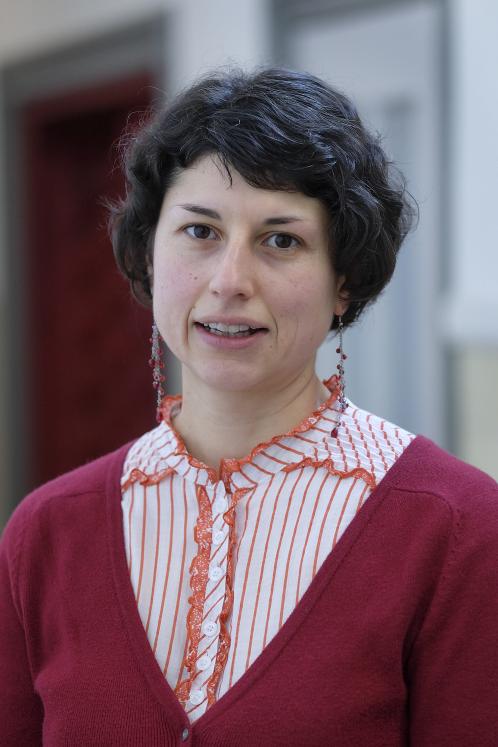 Aneta Spendzharova (Ph.D., 2007, assistant professor, University of Maastricht, The Netherlands) https://www.maastrichtuniversity.nl/ab-spendzharova
Aneta Spendzharova (Ph.D., 2007, assistant professor, University of Maastricht, The Netherlands) https://www.maastrichtuniversity.nl/ab-spendzharova
Aneta’s research interests are in political economy, regulatory governance and the politics of East Central Europe. In her main research project, she analyzes the preferences of European Union member states in banking sector supervision. Her research has been published in Review of International Political Economy, Journal of Common Market Studies, Journal of European Public Policy, West European Politics. She is the author of Regulating Banks in Central and Eastern Europe Through Crisis and Boom (Palgrave Macmillan, 2014).
Aneta’s comments on her experience at UNC:
“The political science department at UNC has inspired me to be a meticulous researcher and a caring teacher and colleague. Faculty members are not only leading scholars in their field but also encouraging mentors. I have the fondest memories of the comparative politics working group meetings and the graduate student get togethers to prepare for our comprehensive exams. The sense of community and collegiality makes UNC special. Enrolling in the political science graduate program is one of the best choices I have made. I was impressed with the intellectual diversity in the department and appreciated the freedom to shape my own research project.
The UNC political science deparment has an excellent reputation in Europe. Having graduated from UNC was defintely an asset when I was on the job market. The rigorous methods training gave me a strong foundation for my own research projects and for many collaborative projects in which I am responsible for research design and data analysis.”
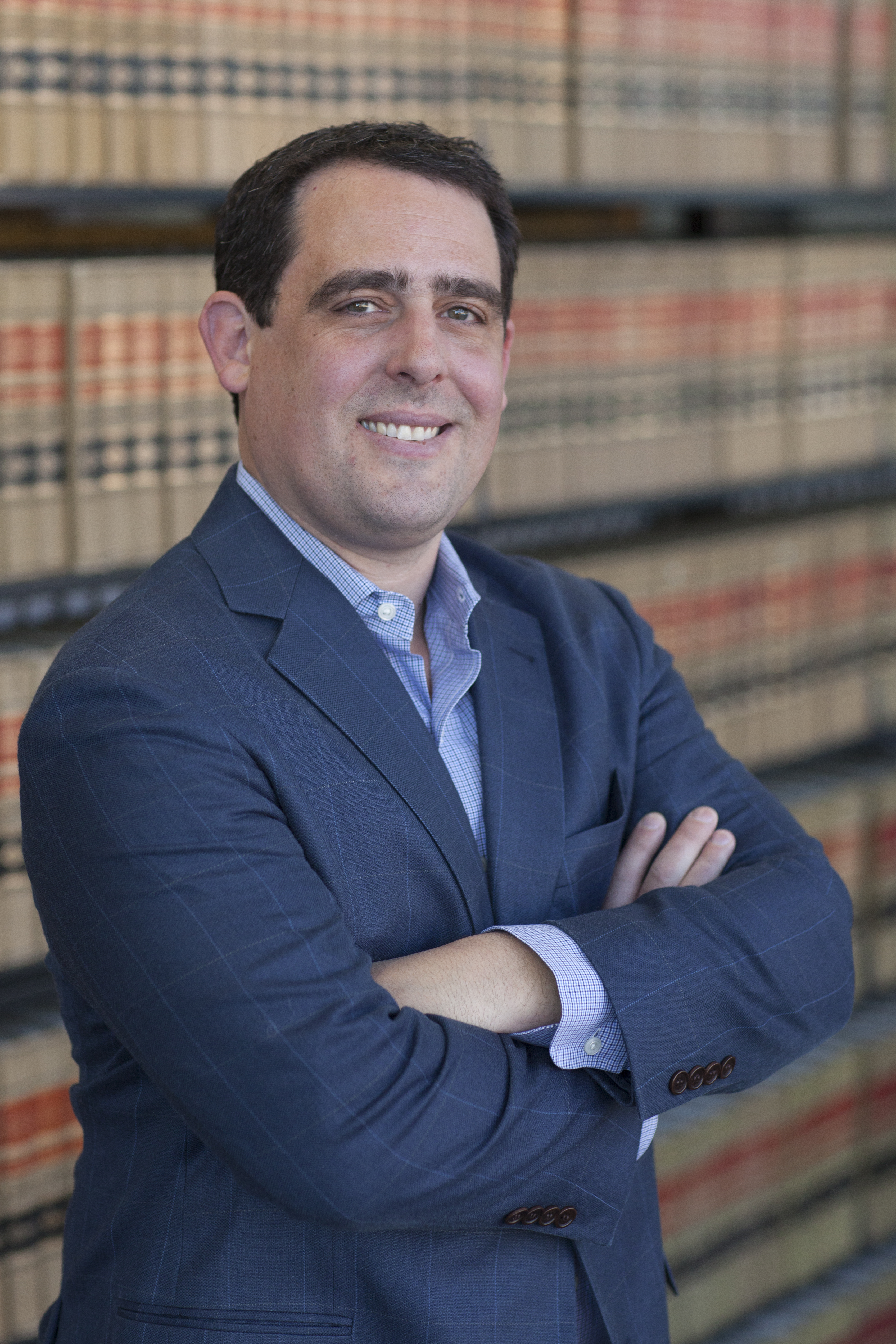 Jason Yackee, (Ph.D., 2007, professor, University of Wisconsin Law School) https://law.wisc.edu/profiles/jyackee@wisc.edu
Jason Yackee, (Ph.D., 2007, professor, University of Wisconsin Law School) https://law.wisc.edu/profiles/jyackee@wisc.edu
Jason’s research focuses on the intersection of international politics and international law. His dissertation examined whether strong international legal protections for foreign investors succeed in promoting investment to developing countries. Jason also specializes in the empirical study of administrative law and politics, and has published a number of studies with his wife Susan Yackee (Ph.D. 2004) examining whether procedural constraints on federal agency discretion alter the outcome and efficiency of regulatory proceedings.
Jason’s comments:
“My time at UNC remains the highlight of my experience as an academic, and I look back upon those years with great fondness. The faculty at UNC were always incredibly supportive, even for someone, like me, who entered the program with less than a clear idea of how or where I wanted to make my scholarly contribution. Even after I took a leave of absence to attend law school at Duke, my mentors at UNC, particularly Thomas Oatley, continued to encourage me to continue my dissertation research and to guide me to the end of what, for me, was a relatively long process. I especially appreciated the willingness of UNC faculty, like Thomas, to co-author with their graduate students, an experience that greatly increased my confidence in my abilities and my marketability when looking for a teaching job. And of course, without UNC’s political science program, I would never have met my wife Susan. For that and other reasons, I wouldn’t trade my years in Chapel Hill for anything.”
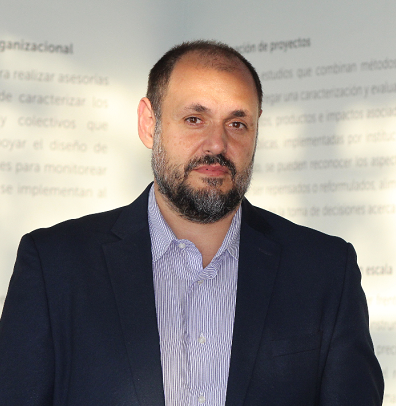 Juan Pablo Luna (Ph.D., 2006, associate professor, Instituto de Ciencia Política, PUC-Chile) https://gobierno.uc.cl/profesores/juan-pablo-luna/
Juan Pablo Luna (Ph.D., 2006, associate professor, Instituto de Ciencia Política, PUC-Chile) https://gobierno.uc.cl/profesores/juan-pablo-luna/
Juan Pablo is interested in the analysis of political parties and democratic representation, the political effects of inequality, and the nature of state institutions. In 2010 he co-authored the book Latin American Party Systems(Cambridge University Press). His dissertation research was awarded the 2008 Juan Linz Best Dissertation Award by the Comparative Democratization Section of APSA and is forthcoming at Oxford University Press. He has also co-edited The Resilience of the Latin American Right (forthcoming at Johns Hopkins University Press). His work has also appeared in Comparative Political Studies, Política y Gobierno, Revista de Ciencia Política, Latin American Politics and Society, International Political Science Review, Third World Quarterly, Journal of Latin American Studies, the Journal of Democracy, Perfiles Latinoamericanos, and Democratization. Since 2006 he has coordinated the LAPOP Survey (Vanderbilt University) in Chile. He has held visiting professor positions at Princeton University (2008), Brown University (2011), and Harvard University (2013).
His comments about his experience in Chapel Hill:
“In retrospect, pursuing my Ph.D. at UNC-CH was a life-changing decision. Everything I have been able to do in my professional life since 1999 has been a direct result of this decision. During my years at Chapel Hill, the Department of Political Science not only contributed decisively to my formal training, but also provided a home far away from home. And having graduated almost a decade ago, I continue to benefit from frequent and incredibly fruitful exchanges with my professors and fellow graduate students.”

Joe Ura (Ph.D., 2006, professor, Clemson University) https://www.clemson.edu/cbshs/about/profiles/index.html?userid=jura
Joe is a Professor and Chair of the Department of Political Science at Clemson University. Joe’s research addresses American national politics, especially the United States Supreme Court and macropolitical responsiveness and representation. His research on judicial politics emphasizes the reciprocal relationships between public opinion and the exercise of judicial power in the United States, while his work on representation explores the causes and consequences of heterogeneity in the dynamics of aggregate public opinion. He teaches courses on American national government, judicial politics, and constitutional law.
Comments: “I am endlessly grateful for my education and experience at UNC. The department enjoys, values, and cultivates an intellectual and social climate that enables students to benefit from the faculty and their peers. The graduate program gave me the chance to learn from exceptional scholars in an environment that was at once challenging and supportive. I also had the chance to benefit from outstanding student colleagues who were instrumental in my intellectual development and who remain important collaborators and close friends. I could not have had a better experience as a graduate student.”
 Elizabeth Markovits (Ph.D., 2005, professor, Mount Holyoke College) https://www.mtholyoke.edu/directory/faculty-staff/elizabeth-k-markovits
Elizabeth Markovits (Ph.D., 2005, professor, Mount Holyoke College) https://www.mtholyoke.edu/directory/faculty-staff/elizabeth-k-markovits
Liz’s research interests range from ancient Greek political thought to contemporary feminist and democratic theory and have primarily focused on questions of rhetoric, freedom, responsibility, and intergenerational justice. She is the author of The Politics of Sincerity: Frank Speech, Plato, and Democratic Judgment (Pennsylvania State University Press, 2008). Her work has also appeared in the Journal of Political Philosophy, the American Political Science Review, Polis and Perspectives on Politics (co-authored with UNC professor and Liz’s former advisor, Susan Bickford). At Mount Holyoke College, Liz has engaged in a number of curricular initiatives, including the development of seminars for the College’s Curriculum-to-Career program, linking liberal arts learning with student’s professional aspirations.
Her comments on graduate school:
“I feel very fortunate to have done my graduate work at UNC. I found the program rigorous and supportive, the professors intellectually compelling and incredibly generous. My fellow students were excellent colleagues through an important stage of my own intellectual development and remain my close friends to this day. The mentorship from UNC faculty was key at every step of the process—from first-year coursework through the dissertation process and on through job placement—and it’s unparalleled by other graduate programs.”
 Jana Morgan (Ph.D., 2005, professor, University of Tennessee) https://faculty.utk.edu/Jana.Morgan
Jana Morgan (Ph.D., 2005, professor, University of Tennessee) https://faculty.utk.edu/Jana.Morgan
Jana’s research focuses on issues of inequality, exclusion and representation. She is particularly interested in exploring how economic, social and political inequalities affect marginalized groups and undermine democratic institutions and outcomes. Her research has appeared in the American Political Science Review, The Journal of Politics, Comparative Political Studies, Latin American Research Review, and Politics & Gender, among others. Additionally, Jana’s first book analyzing how representational failures cause party systems to collapse received the Van Cott Best Book Award from the Latin American Studies Association (Bankrupt Representation and Party System Collapse, Penn State, 2011). She has received funding for her research from the Russell Sage Foundation, the Pew Foundation, and the Fulbright-Hays program.
Jana’s comments about her time at UNC:
“One of the most valuable features of my experience as a graduate student at UNC was how the faculty encouraged me to explore important research questions and to care about understanding how politics has repercussions for people’s lives. This core emphasis on pursuing knowledge with an eye toward issues of substantive significance distinguishes UNC, and my experiences in that environment have profoundly shaped my identity as a scholar and fostered in me an enduring enthusiasm about my work. Moreover, UNC provided all the training, support, and guidance necessary to pursue my intellectual and professional goals. The faculty offer exceptional mentoring, serious substantive expertise, and state-of-the-art methodological training. As a comparativist studying Latin America, the department equipped me to obtain essential external funding in support of my dissertation research in Venezuela, and I also had access to an array of university resources for conducting additional field research. I deeply value my time spent at Carolina as it helped me build a strong foundation for a successful and fulfilling career.”
 Stephen Long (Ph.D., 2005, associate professor, University of Richmond) https://facultystaff.richmond.edu/~slong/
Stephen Long (Ph.D., 2005, associate professor, University of Richmond) https://facultystaff.richmond.edu/~slong/
Stephen’s research focuses on the causes of war, the causes and effects of interstate rivalries, and the political sources of military effectiveness in warfare. His research has appeared in International Studies Quarterly, Journal of Conflict Resolution, Journal of Peace Research, International Interactions, International Politics, and Conflict Management and Peace Science. After spending four years at Kansas State University, Stephen moved to the University of Richmond, where he earned tenure in 2015. His students at UR have won the Truman Scholarship, the Pickering Fellowship (Dept. of State), the Boren Scholarship (National Security Education Program), the Rotary Ambassadorial Scholarship, and the Running Start/Wal-Mart Star Congressional Fellowship. They have been accepted for graduate studies at Harvard University (Kennedy School), Yale University (Jackson School), Tufts University (Fletcher School), Georgetown University (SFS), the London School of Economics, American University (SIS), and Johns Hopkins University (SAIS). In 2011, he won the Academic Advising Excellence Award. He teaches courses on international relations, American foreign policy, and international security.
His comments:
“In my years at UNC, I transformed from a passive consumer of academic research to an active participant in the ongoing scholarly dialogue in international relations. Working with Mark Crescenzi, Thomas Oatley, and Tim McKeown, I learned fundamental skills: how to identify topics worthy of exploration, frame interesting research questions and hypotheses, and evaluate those hypotheses using the methods that are most appropriate to the problem. Just as important, the faculty at UNC always treated me as a young colleague, inviting me to co-author with them and allowing me to take on increasingly independent teaching responsibilities. I will always be grateful to the department for what they did for me and my classmates.”
 Nathan Kelly (Ph.D., 2004, professor, University of Tennessee) https://nathanjkelly.utk.edu/
Nathan Kelly (Ph.D., 2004, professor, University of Tennessee) https://nathanjkelly.utk.edu/
Nathan’s research focuses on economic inequality in the United States and cross-nationally as well as time series methodology. He is interested in how politics and policy shape distributional outcomes and how the mass public responds to changes in economic inequality. His research has received funding from the National Science Foundation and the Russell Sage Foundation. He has published a book with Cambridge University Press and is the author of articles appearing in the American Sociological Review, American Journal of Political Science, The Journal of Politics, Political Analysis, Political Research Quarterly, American Politics Research.
Nathan’s comments about his experience in graduate school:
“I loved my time at UNC. I received excellent substantive and methodological training. The faculty were extremely supportive, and the graduate students were eager to see each other succeed. I found the American Politics Research Group to be a wonderful way to gain exposure to the broader discipline and it also provided a great example of how vibrant the intellectual life of an academic department can be. Unsurprisingly, I remain friends with many colleagues from my cohort and have become friends with many other more recent UNC Ph.D.s. Perhaps more surprisingly, some of those relationship have turned into very fruitful ongoing co-authorships. Overall, I cannot imagine a better graduate school experience. And the benefits of that experience have become even more apparent as I’ve spent more time away from UNC.”
 Christine Kelleher Palus (Ph.D., 2004, Dean of College of Professional Studies & Professor of Public Administration, Villanova University) https://www1.villanova.edu/university/professional-studies/about/dean.html
Christine Kelleher Palus (Ph.D., 2004, Dean of College of Professional Studies & Professor of Public Administration, Villanova University) https://www1.villanova.edu/university/professional-studies/about/dean.html
Christine Kelleher Palus, PhD, was appointed Dean of Villanova University’s College of Professional Studies in June 2018. Dr. Palus also holds the rank of professor in the Department of Public Administration. Prior to joining the College of Professional Studies, Dr. Palus served as Dean of Graduate Studies in Villanova’s College of Liberal Arts and Sciences. Dr. Palus chaired the Department of Public Administration for several years while also directing Villanova’s nationally accredited master’s program in Public Administration.
An accomplished scholar, Dr. Palus’ research on public administration and management, state and local politics, urban politics and women in politics has been widely published in leading academic journals, including the Journal of Public Administration Research and Theory, Public Administration Review, State and Local Government Review, Urban Affairs Review, American Review of Public Administration, British Journal of Political Science, Political Behavior, State Politics and Policy Quarterly, The Journal of Public Affairs Education, and Political Research Quarterly. Notably, Dr. Palus (with fellow UNC-alum and co-author Susan Webb Yackee, PhD) won the Beryl Radin award from the Public Management Research Association for Best Article published in the Journal of Public Administration Research and Theory during 2016.
Some comments on my time at UNC:
“My five years at UNC were incredible. The mentorship I received from my faculty supervisors, especially the late Deil Wright, David Lowery, Michele Hoyman, and Virginia Gray, was absolutely invaluable and extremely formative. I use the knowledge, skills, and wisdom they imparted every day. The opportunity to work so closely with these faculty members on varied projects and publications was instrumental to my career. Additionally, my fellow graduate students have become lifelong research partners and friends. I am extremely grateful to the entire UNC community for the way in which everyone there helped me to shape me as a scholar and a teacher.”
 Claudio A. Fuentes (Ph.D., 2003, Director of the Social Science Research Institute (ICSO) at Universidad Diego Portales in Santiago, Chile) https://socialesehistoria.udp.cl/?persona=claudio-fuentes-saavedra
Claudio A. Fuentes (Ph.D., 2003, Director of the Social Science Research Institute (ICSO) at Universidad Diego Portales in Santiago, Chile) https://socialesehistoria.udp.cl/?persona=claudio-fuentes-saavedra
Claudio’s work focuses on several dimensions of democratic politics. His early research focused on human rights and civil military relations during transitions to democracy in Latin America, followed by studies of the protection of citizens’ rights within a democratic framework, especially police violence in Argentina and Chile. His most recent work addresses the formal and informal dynamics of constitutional reform in Chile, and the political intermediation between legislators and citizens (particularly indigenous people). His dissertation received the American Political Science Association Award for Best Dissertation from the Human Rights Section. In 2011 Claudio held the Andronico Luksic Fellowship as Visiting Scholar at the David Rockefeller Center for Latin American Studies at Harvard University. He is author of four books and five edited volumes.
My time in UNC:
“I can honestly say that UNC changed my life in several ways. First, I had an excellent academic experience, learning every single day about theoretical and methodological approaches toward politics. Second, I met outstanding professors who cared about students inside and outside the classroom setting. Finally, students and professors developed a very good network of collaboration that continues up today.”
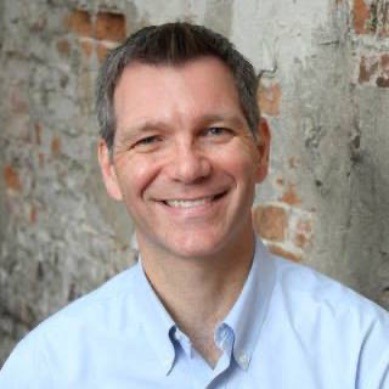
Fred’s primary research interests are in comparative politics, the study of why politics is different in different countries. They focus on the consequences of economic inequality for political attitudes and behavior. His work on this topic has appeared in the American Journal of Political Science, the Journal of Politics, the British Journal of Political Science, and other journals. To facilitate this research, he created and maintains the Standardized World Income Inequality Database (SWIID), which provides the most comparable data available on income inequality for countries around the world over the past half-century. The SWIID is now relied on by academics in a wide range of disciplines, by NGOs, and by major international organizations.
Fred’s comments about his experiences at UNC:
“I think the most striking thing about studying political science at Chapel Hill was how well the department instilled in me and my classmates the very best sense of what it means to be a scholar. The faculty constantly inspired us to take on big, important questions; challenged us to dedicate ourselves to finding the best evidence for answering them; and demonstrated for us that figuring out how the political world works is necessarily a collaborative process, a task that we always take on together, even when we work alone. I can’t imagine a better place to study.”
 Christopher Witko (Ph.D., 2003, professor, Pennsylvania State University) https://polisci.la.psu.edu/people/cxw877/
Christopher Witko (Ph.D., 2003, professor, Pennsylvania State University) https://polisci.la.psu.edu/people/cxw877/
Chris’ research focuses on how organized interests use their resources, especially campaign contributions, to influence policy at both the state and federal level and on the determinants and consequences of policies that influence the distribution of resources in the first place (e.g. education, budgetary and economic policy). Chris’ research on these topics has appeared in the The American Journal of Political Science, The Journal of Politics, The Journal of Public Administration Research and Theory, Political Research Quarterly and numerous edited volumes.
Chris’ comments about his experiences in graduate school:
“UNC was the perfect choice for me. It had, and still has, some of the leading experts in American politics and public policy. In addition to this substantive expertise, the department is well-known for rigorous methodological training, which has helped me throughout my career. The social environment at UNC was also very welcoming and supportive – I have ongoing collaborative relationships with a number of my graduate student colleagues and even students that attended UNC after I left. I also have great relationships with many of the professors that I worked with during graduate school. Chapel Hill is also a great place to spend a few years. If I had to do it over again, I would definitely choose UNC.”

Susan Webb Yackee (Ph.D., 2003, professor, University of Wisconsin-Madison) https://polisci.wisc.edu/staff/susan-webb-yackee/
Susan’s areas of specialty include the U.S. public policymaking process, regulation, administrative law, and interest group politics. Yackee is particularly interested in the politics of regulatory policy formation. Her work has been published in articles in a number of journals, including the Journal of Politics, Journal of Public Administration Research and Theory, British Journal of Political Science, and Journal of Policy Analysis and Management. Yackee recently received a $500,000 grant to study the U.S. FDA’s policy decision-making process. She currently serves as the Director of the La Follette School of Public Affairs at the University of Wisconsin-Madison.
Yackee’s comment on graduate school at UNC-CH include:
“I had great training at UNC, and as a scholar of the U.S. policymaking process, it was particularly advantageous for me to train with some of the top American politics scholars in the country. I have terrific memories of my peers at UNC, as well. That network of other graduate students has been instrumental to me—both personally and professionally.

Matt Fellowes is the Chief Innovation Office of Morningstar. In this capacity, Matt is responsible for developing, implementing and managing new business and product ideas throughout the organization. Prior to this role, Fellowes was the founder and CEO of HelloWallet, which was acquired by Morningstar in 2014. HelloWallet is a reflection of Matt’s commitment to democratize access to independent financial advice for all workers.
Before founding HelloWallet, Matt was a Fellow at the Brookings Institution. His consumer finance work has been published in academic journals and covered in top media around the world, including feature stories in BusinessWeek, USA Today, the New York Times, NBC Nightly News, CBS Evening News, and ABC World News, among others. Matt has testified in front of the U.S. Congress and State Houses across the country and advised dozens of elected officials, businesses, and banking regulatory agencies on consumer finance issues.
Matt has served as a professor of public policy at Georgetown University and George Washington University, as a project director at the Pew Charitable Trusts, and on academic editorial boards. A native of Chicago, he holds a PhD from the University of North Carolina at Chapel Hill, an MPP from Georgetown University, and a BA from St. Lawrence University. In addition to receiving numerous awards for his work, Matt had the honor of being selected by the Huffington Post as a Top 100 Game Changer and a Tech Titan by the Washingtonian Magazine. He lives in Washington, DC with his wife and two daughters.
Matt’s comments about UNC:
“UNC was the perfect choice for my Ph.D. graduate work. I got access to some of the top Political Scientists and methodologists in the country, an intellectually stimulating and fun-loving group of fellow grad students, and close proximity to Washington, DC, where I could nurture relationships with policymakers and public intellectuals at think tanks. Numerous research opportunities also allowed me to publish several academic papers during my years at UNC as a student, which gave me broad access to both academic and applied policy opportunities.”
 Anne Marie Choup (Ph.D., 2001, associate professor, University of Alabama in Huntsville)
Anne Marie Choup (Ph.D., 2001, associate professor, University of Alabama in Huntsville)
Anne Marie’s research examines the changing relationships between governments and historically marginalized populations. Her current research focuses on citizen demands and government responses to gender-based violence. She has also carried out research on the interaction between grassroots organizations and democratizing Latin American government. Anne Marie has published on Latin America in various journals (Social Movement Studies, the Journal of Civil Society, the International Political Science Review, and Development and Change, and on civil society and democratization in the Sub-Saharan African context in Politics.
About UNC:
“I was not entirely sure that UNC was for me when I decided to come. I was living and working in Cameroon as a high-school English teacher with the Peace Corps when I applied, and I had never set foot on the Chapel Hill campus. I was prepared to feel completely disoriented from both re-entry culture shock and from living in the south for the first time. As it turns out, this was a great decision for me. The working environment is challenging, but the environment and people are top-notch and provide not only excellent training and critique, but also logistic support and encouragement for students to do their best work. My training at Chapel Hill has given me the tools – and on-going support network of former classmates and faculty – for getting great jobs and a satisfying career.”
 Christina Ewig (Ph.D., 2001, professor, Humphrey School of Public Affairs, University of Minnesota, Twin Cities)
Christina Ewig (Ph.D., 2001, professor, Humphrey School of Public Affairs, University of Minnesota, Twin Cities)
Christina’s research centers on the politics of gender and race in Latin America. Her first book, Second-Wave Neoliberalism: Gender, Race and Health Sector Reform in Peru (Penn State University Press, 2010) focused on the politics of market-oriented health sector reforms in the 1990s and 2000s and their impact on gender and racial equity. This book won the Flora Tristán award for best book on Peru in 2010-12 from the Peru Section of the Latin American Studies Association. She has also carried out research on gender and social policy reforms in Colombia and Chile. Her current research compares women and indigenous peoples in Latin America, and the relationship between their advances in political representation and substantive changes in political agendas. Her publications have appeared in journals such as Feminist Studies, Latin American Politics and Society, Latin American Research Review, Social Politics, and World Development. Her research has been supported by a Fulbright New Century Scholars award and a Rockefeller residential fellowship.
Christina’s comments:
“UNC not only gave me top-notch training in Comparative politics, the professors also gave me great confidence in myself and my abilities. Having faculty push me intellectually, but at the same time support and believe in me as a potential scholar helped me to become the scholar I am. I appreciated the Department’s methodological pluralism, and its commitment to area studies. It was the best place I can imagine to study Latin American Politics. I not only developed lasting relationships with faculty and students in Political Science whose work focused on Latin America, but also grew intellectually through the many interdisciplinary workshops on Latin America made possible through the UNC-Duke collaboration in Latin American Studies.”

